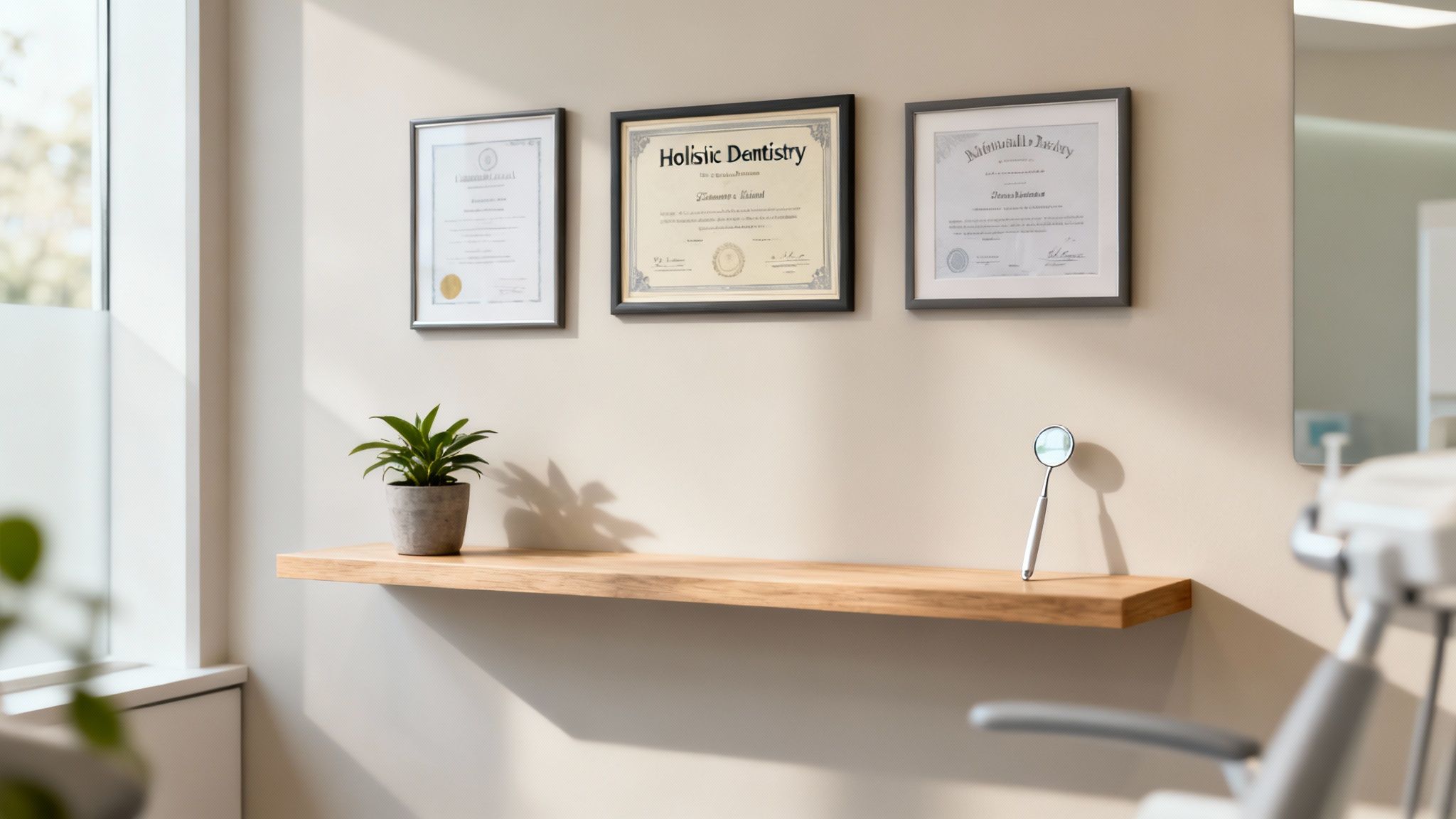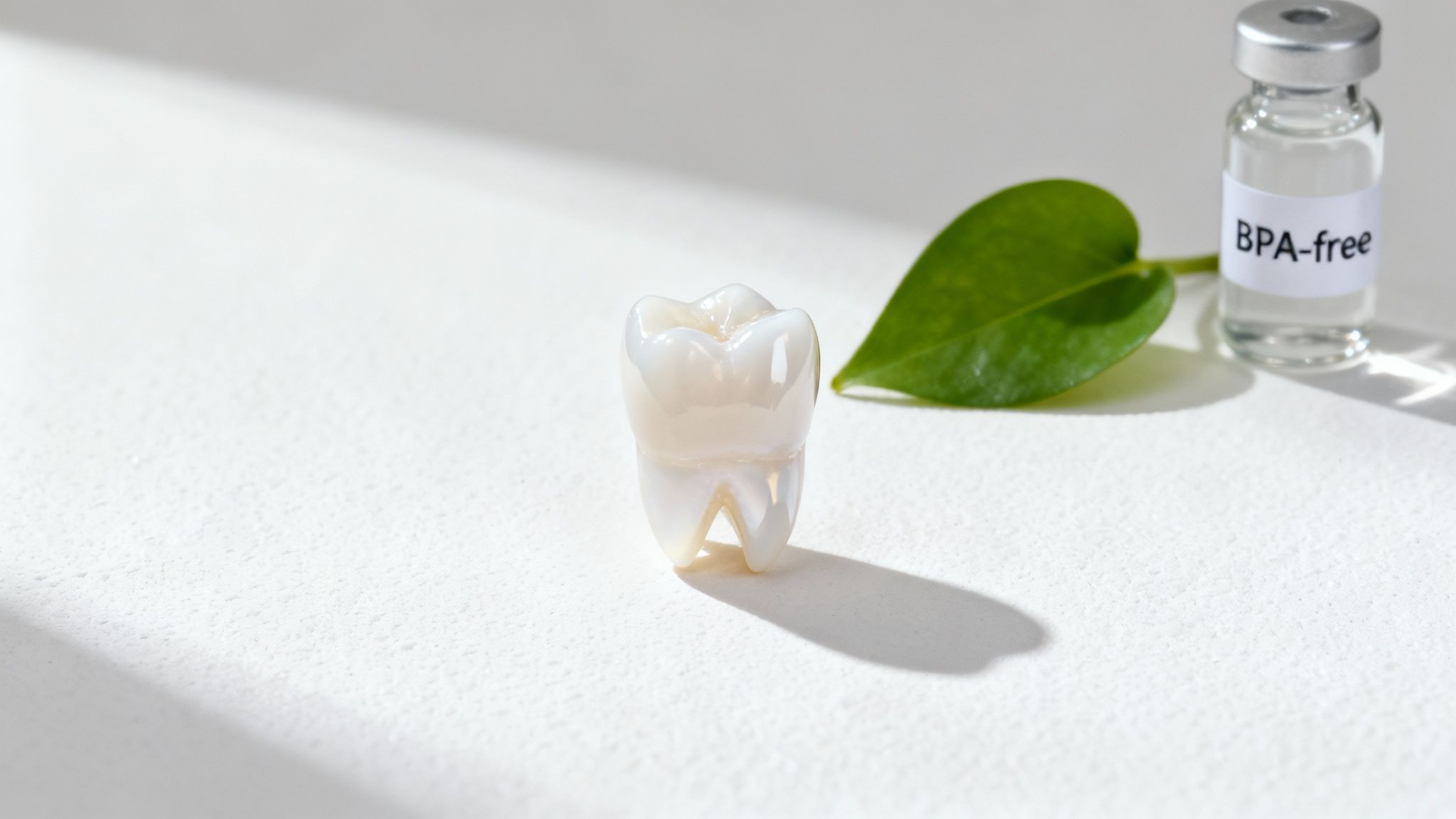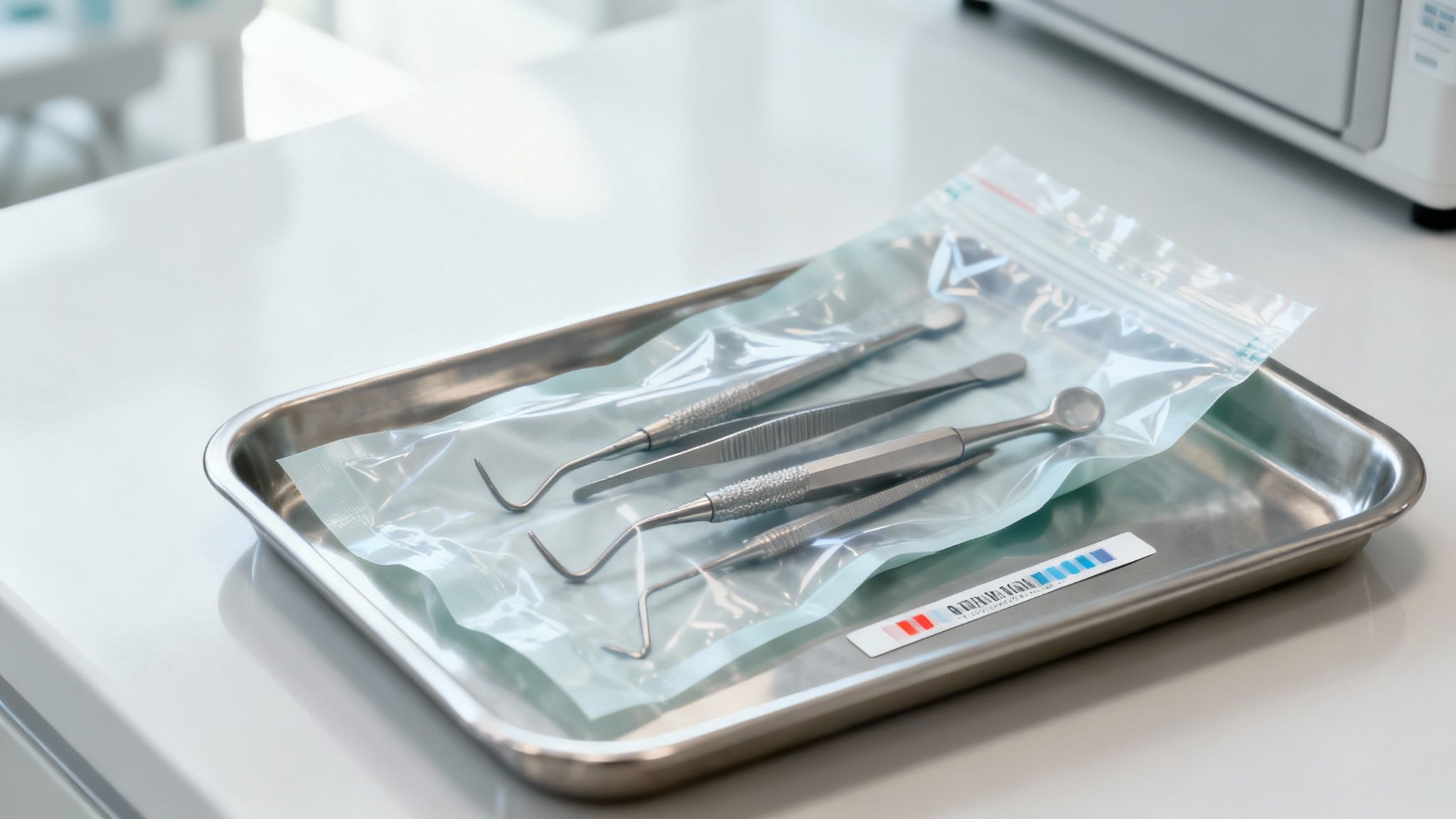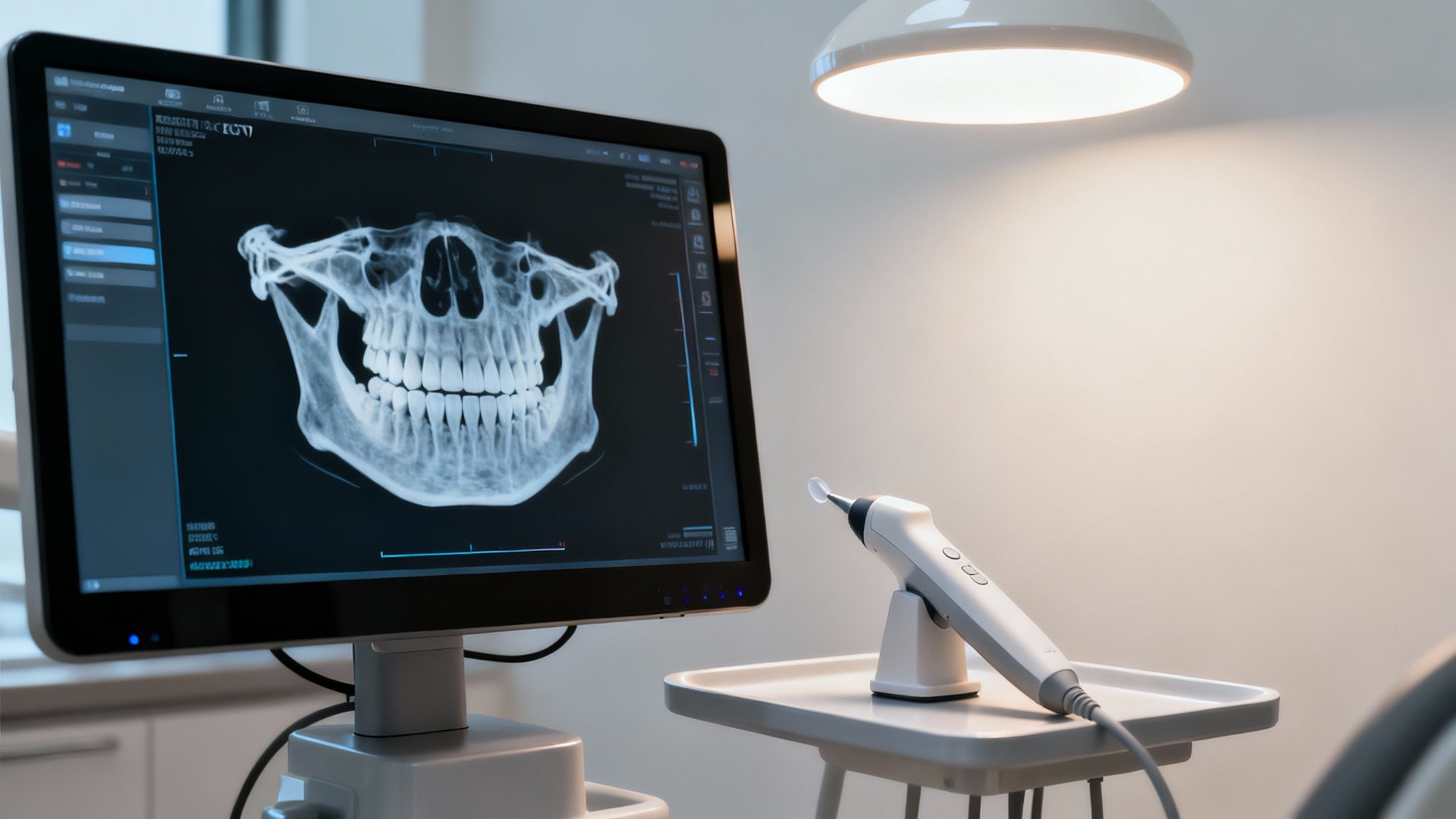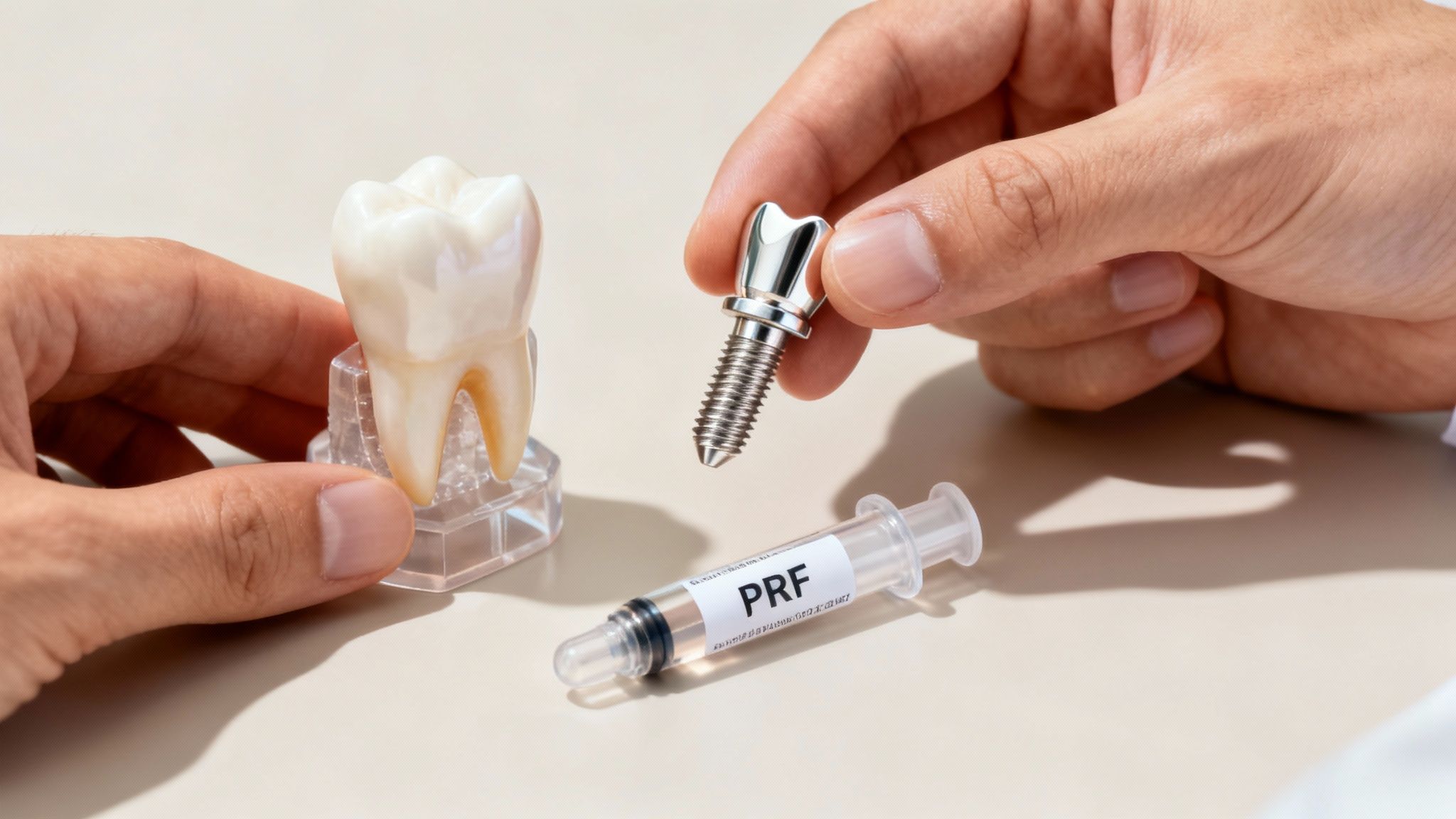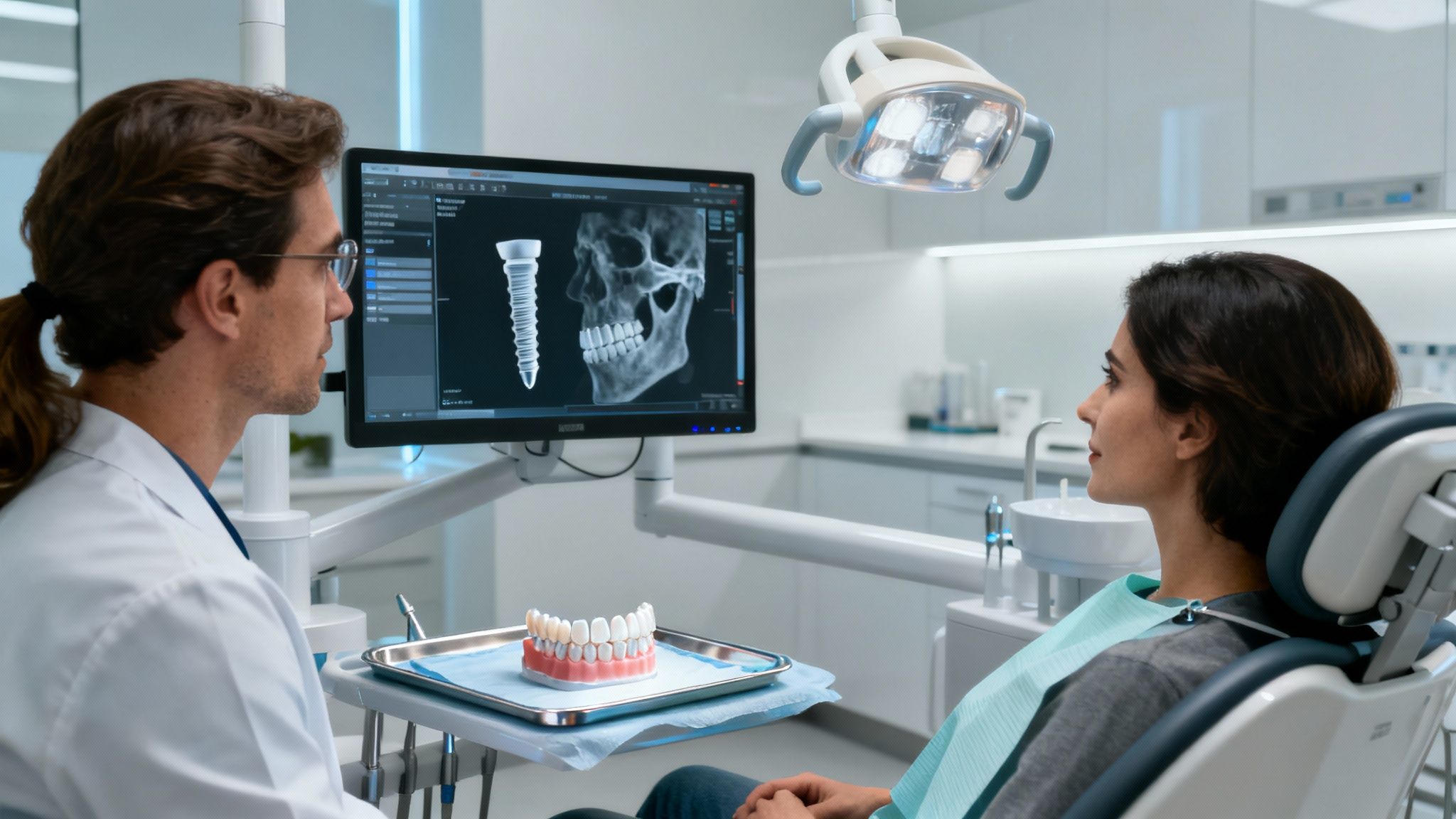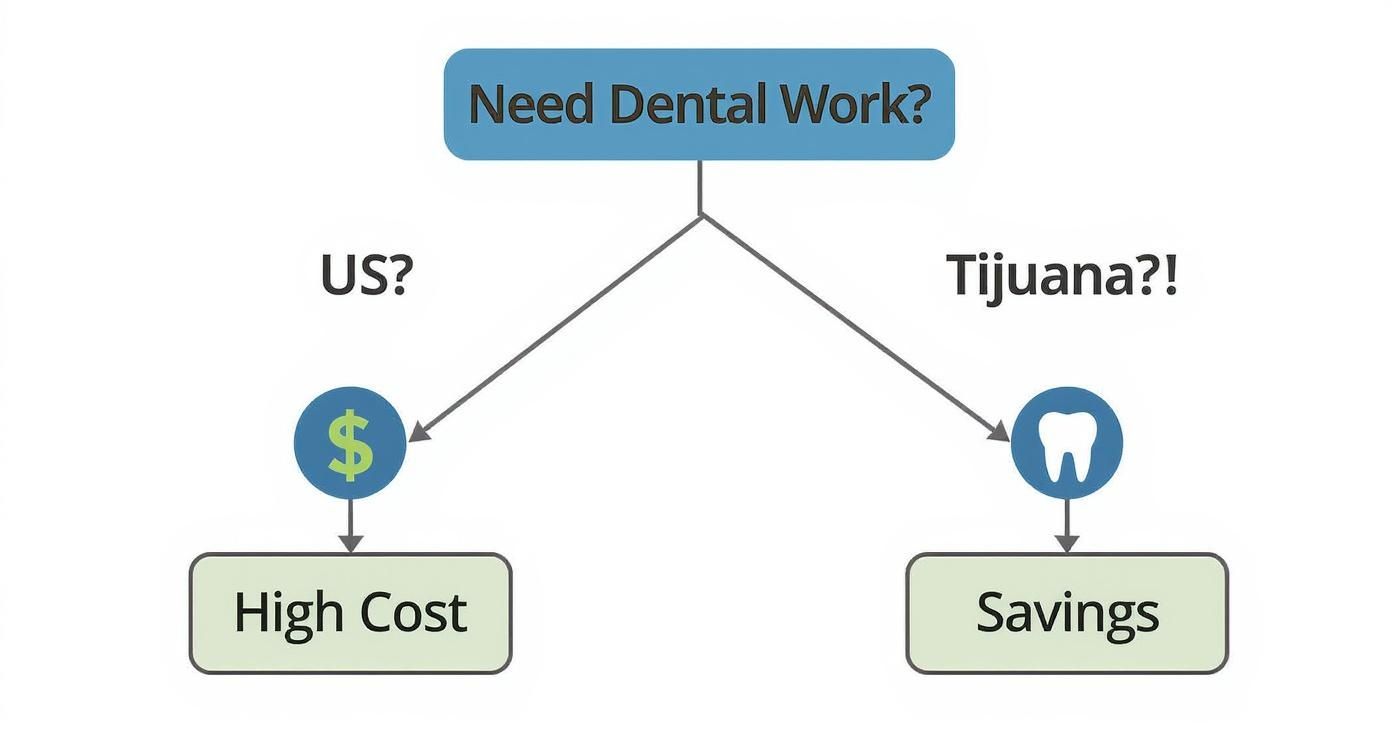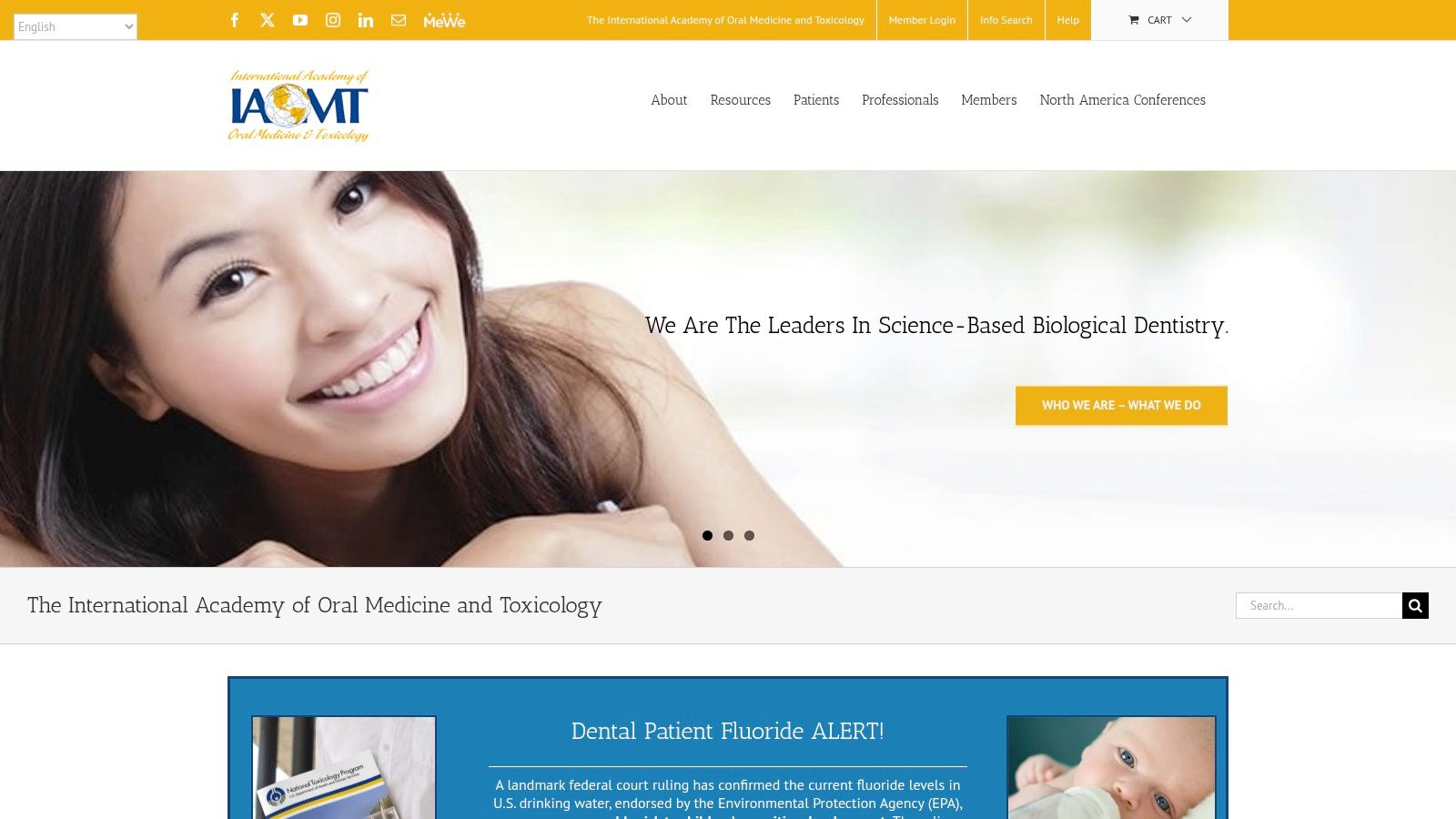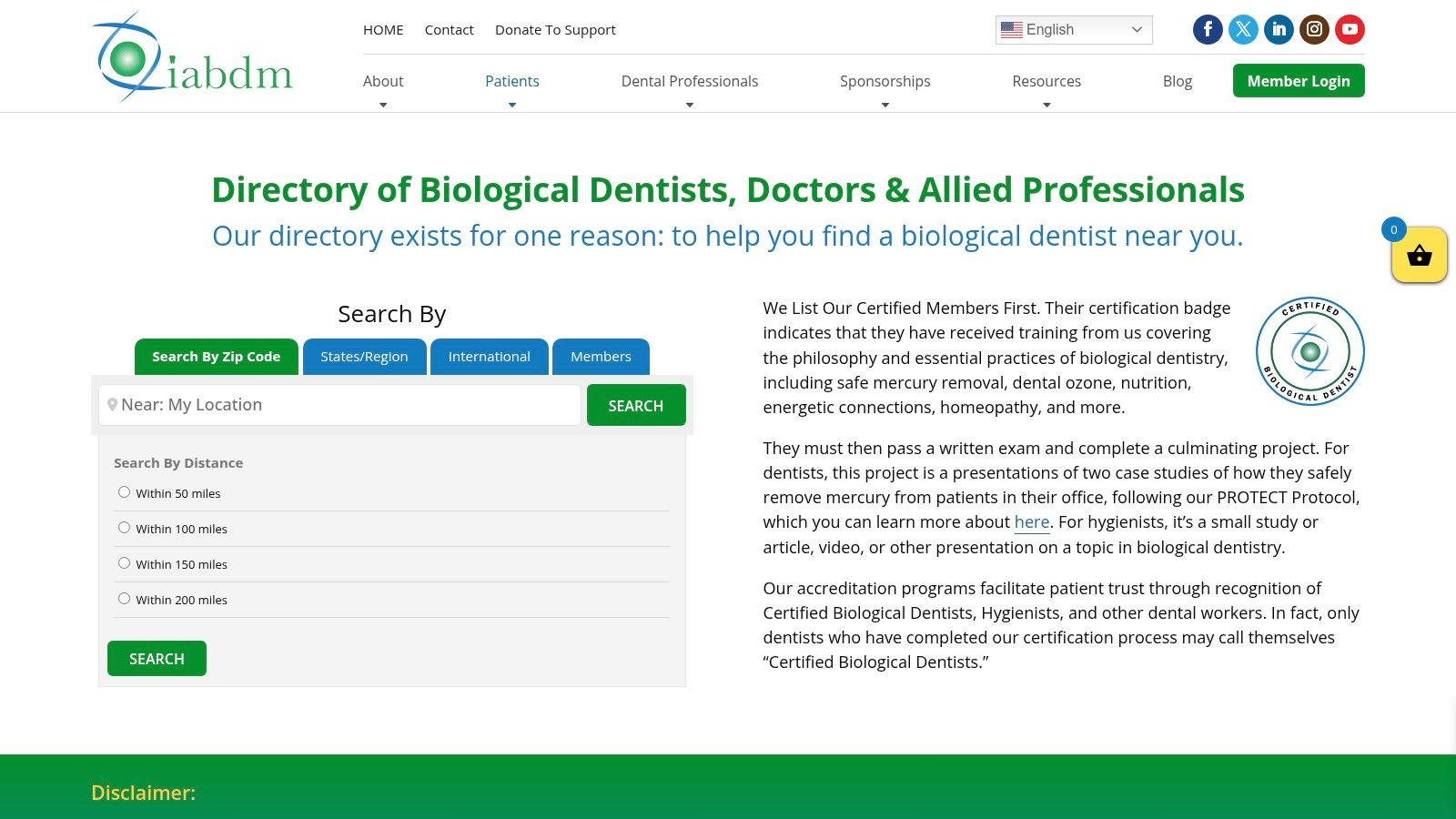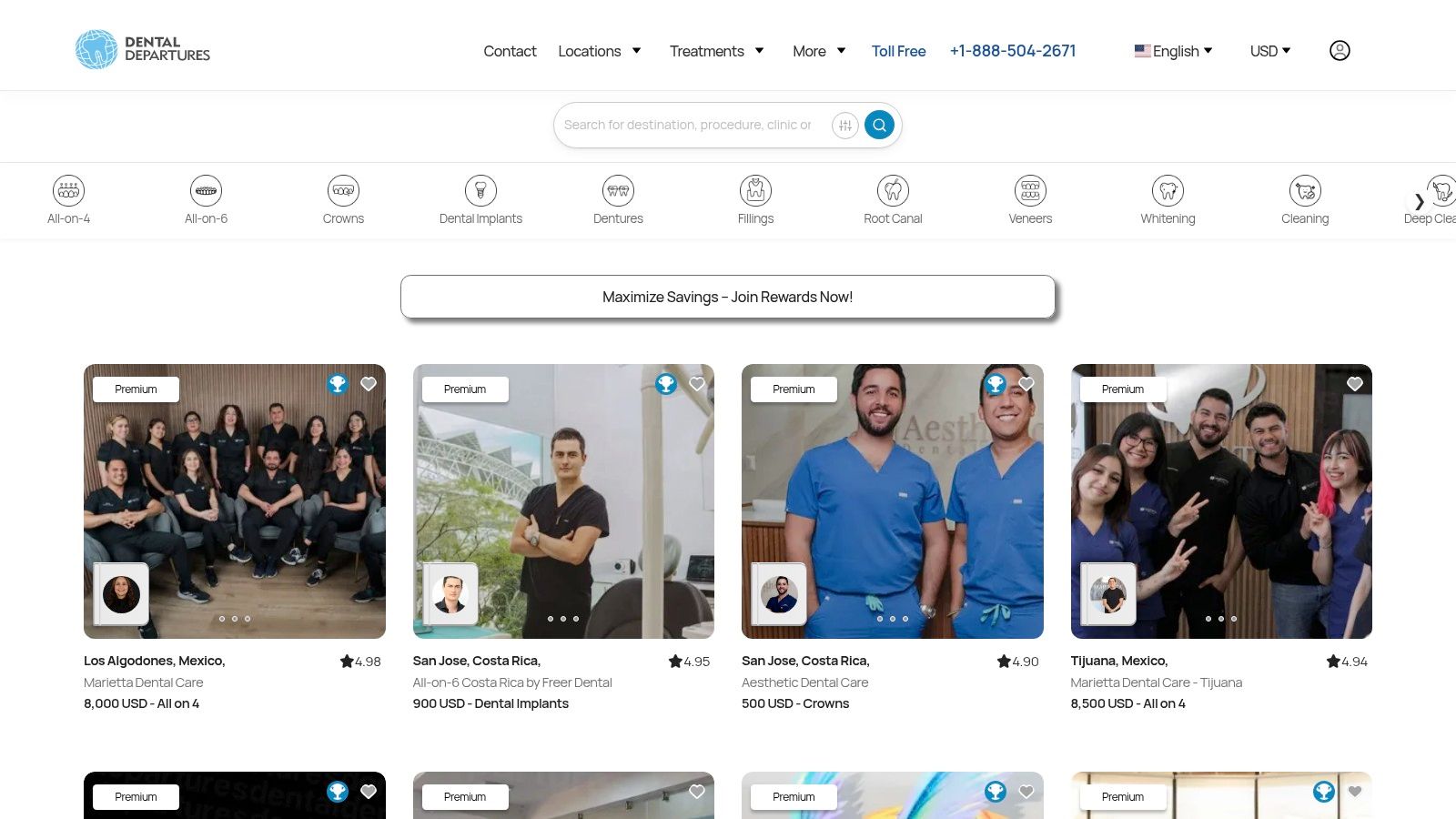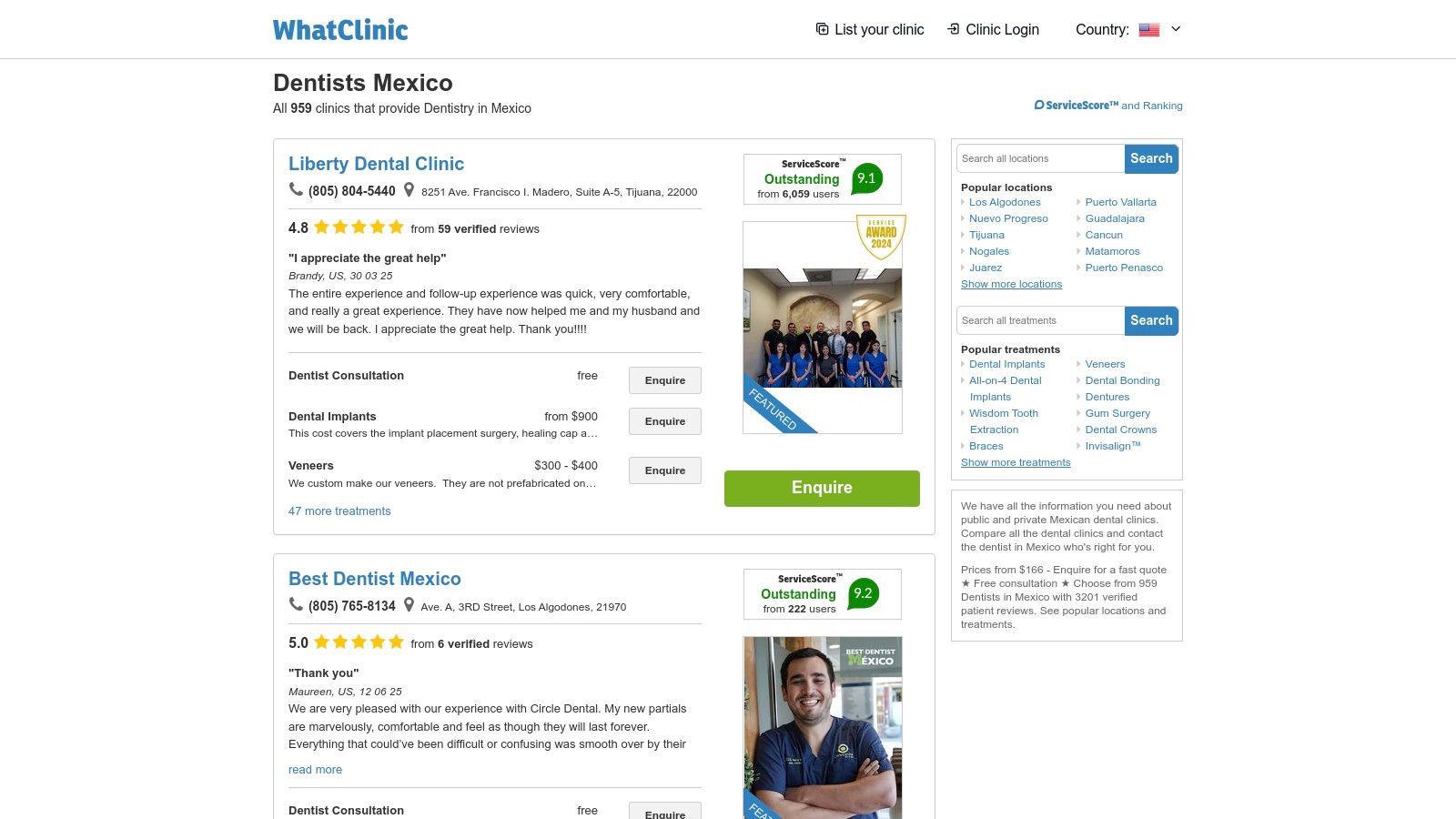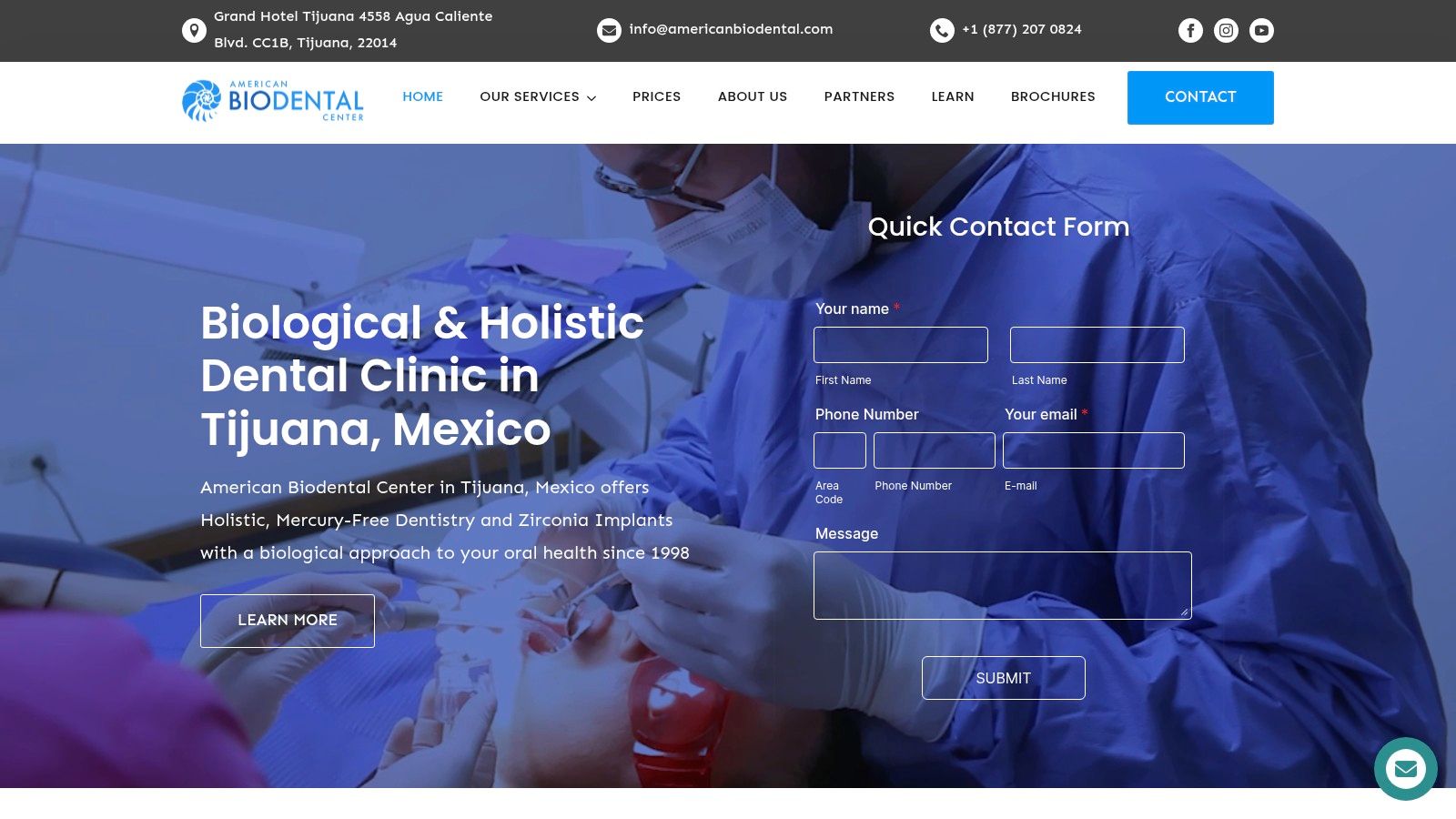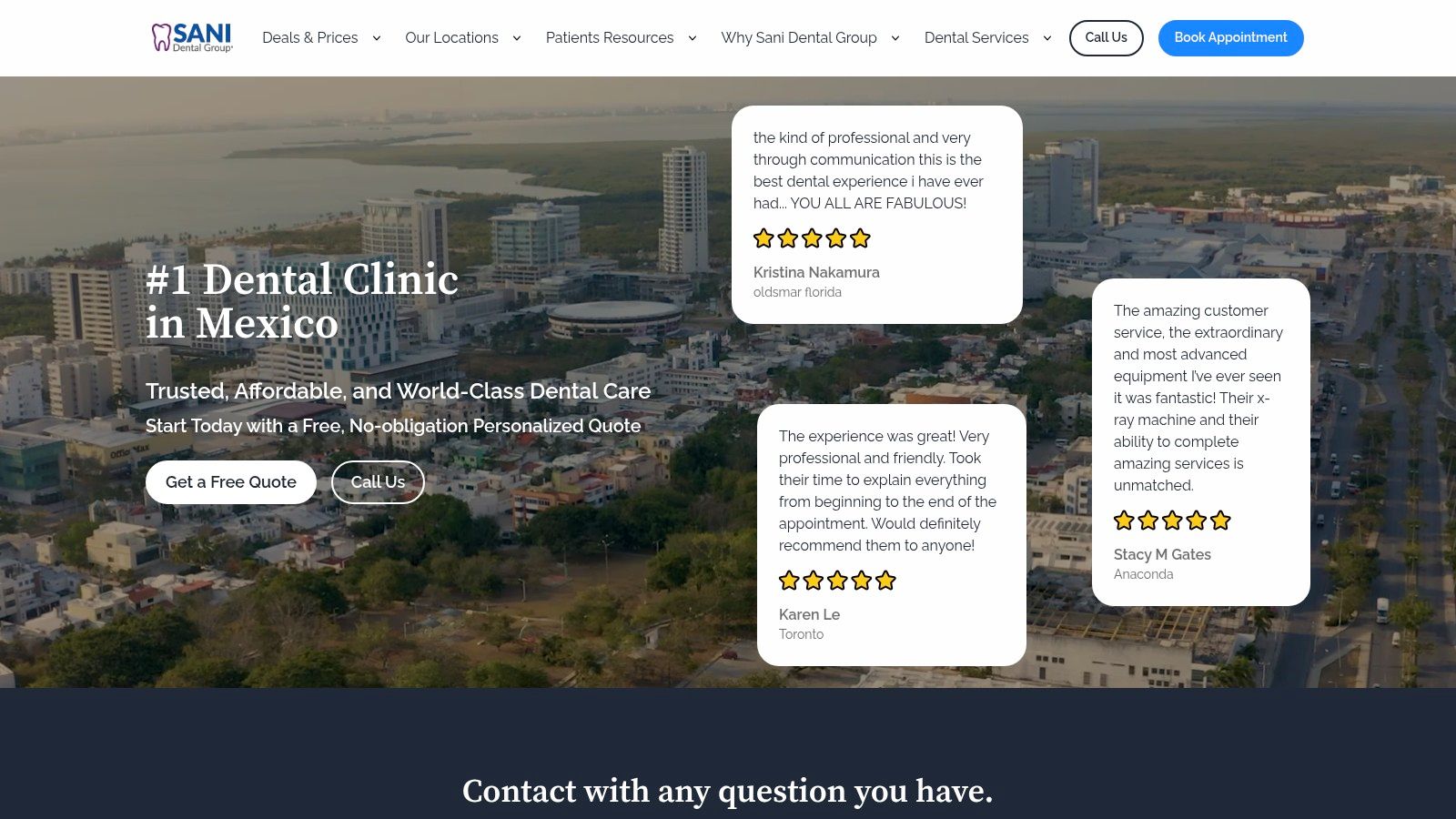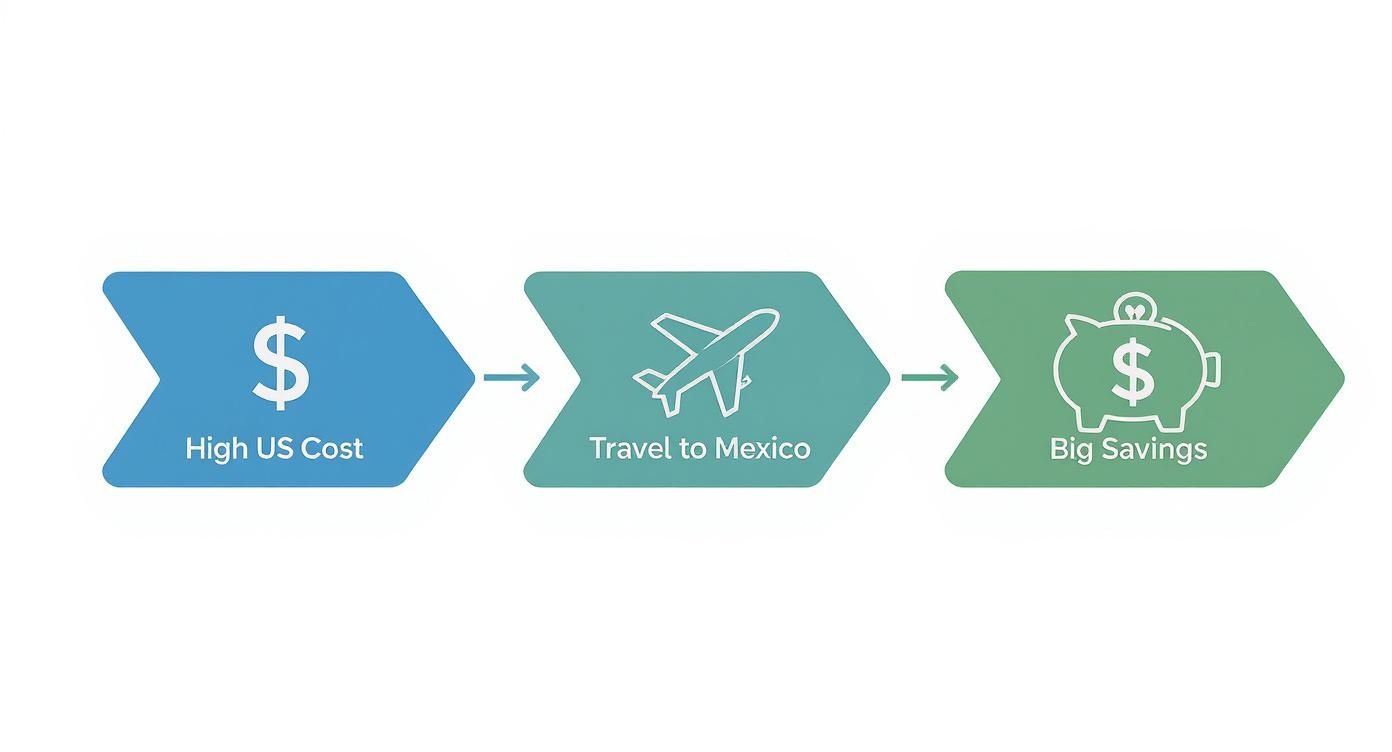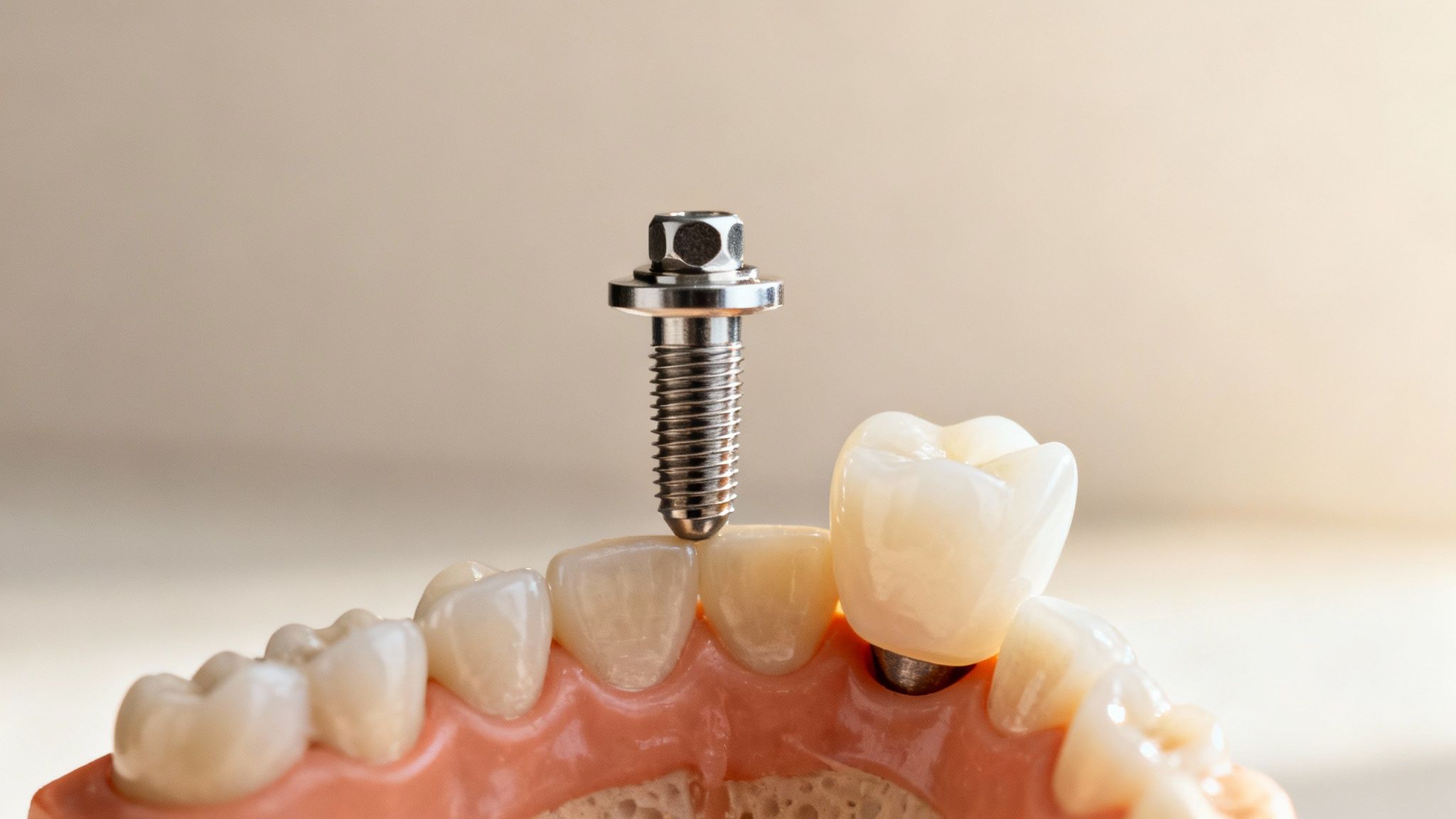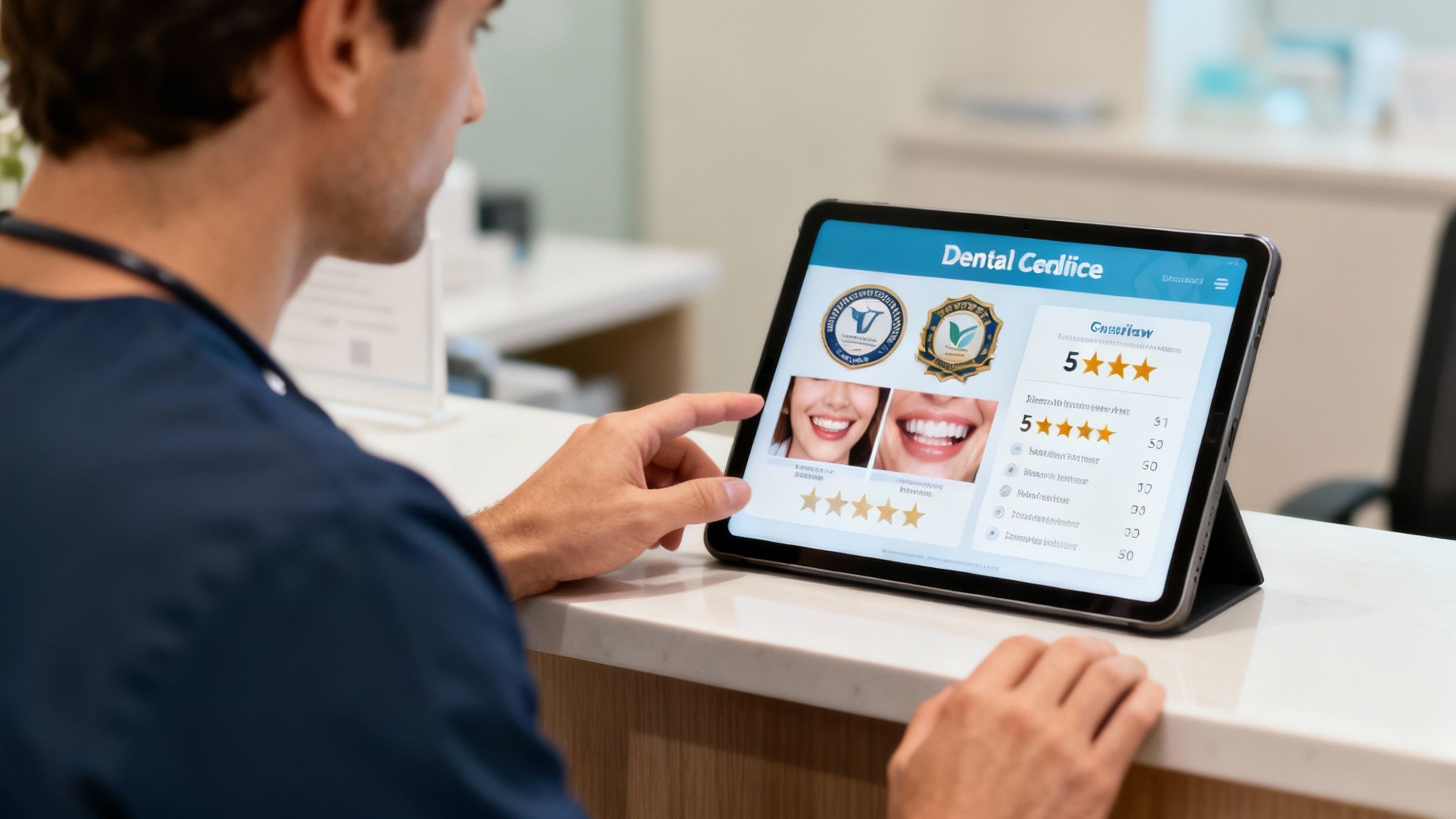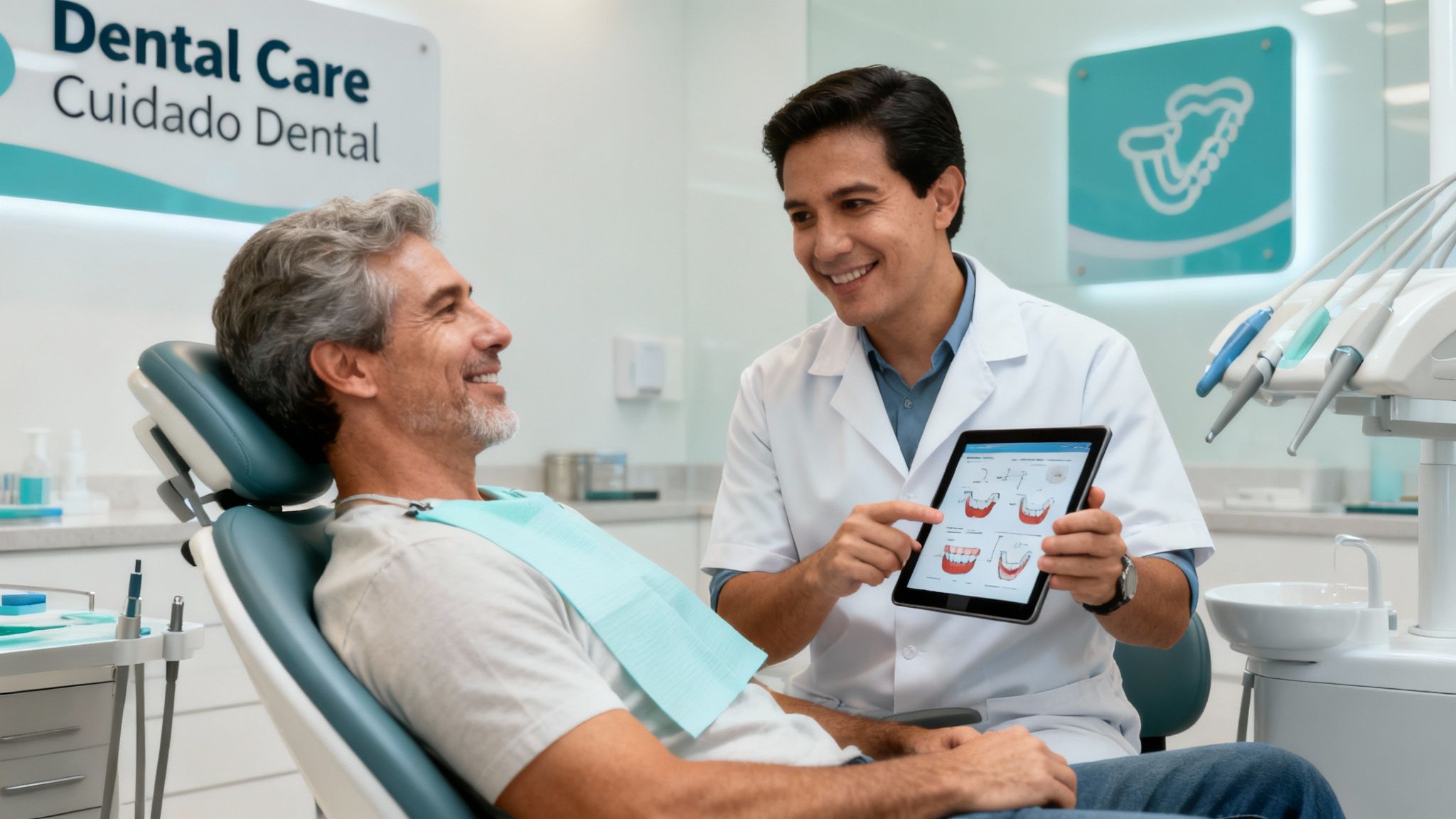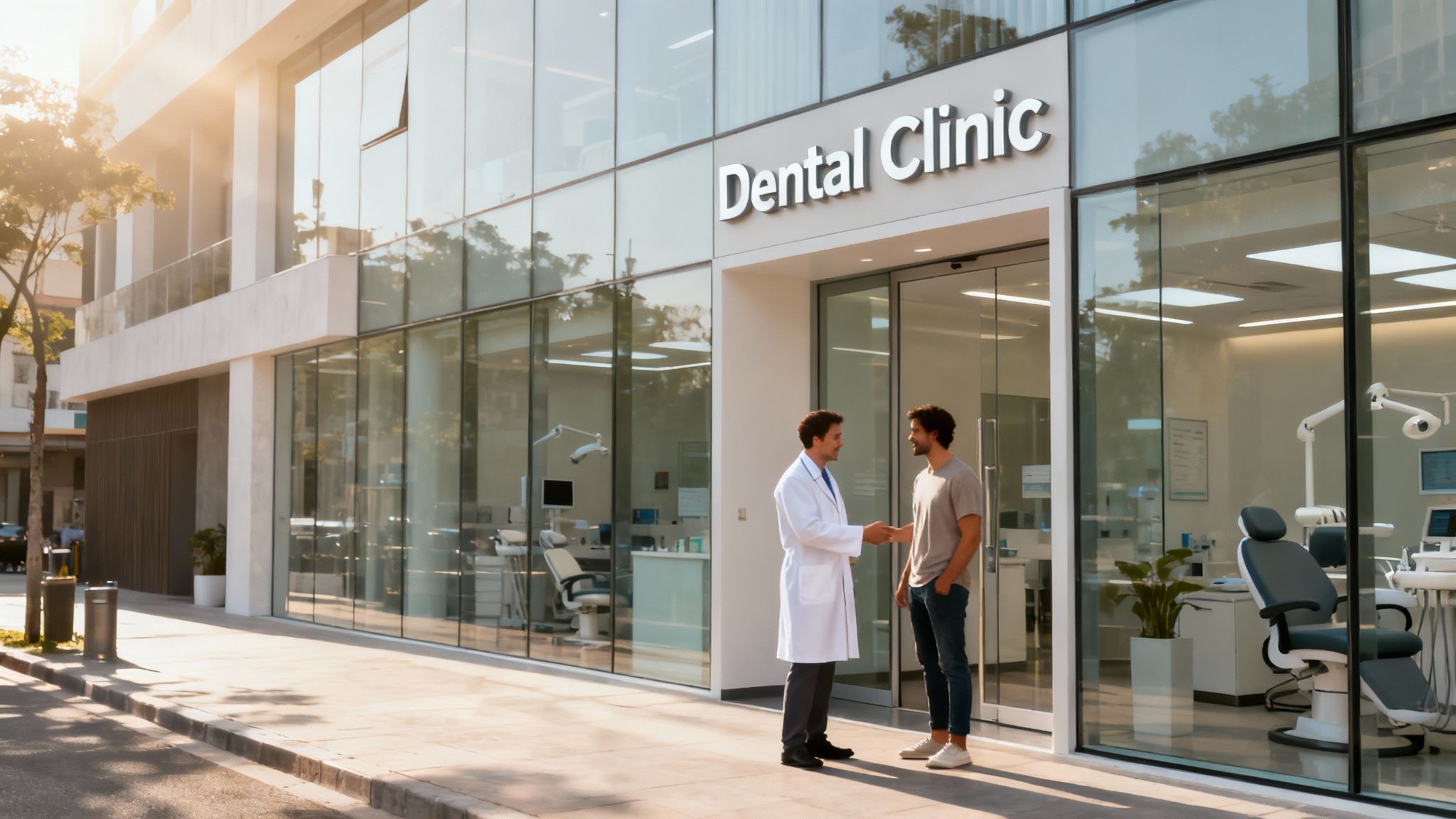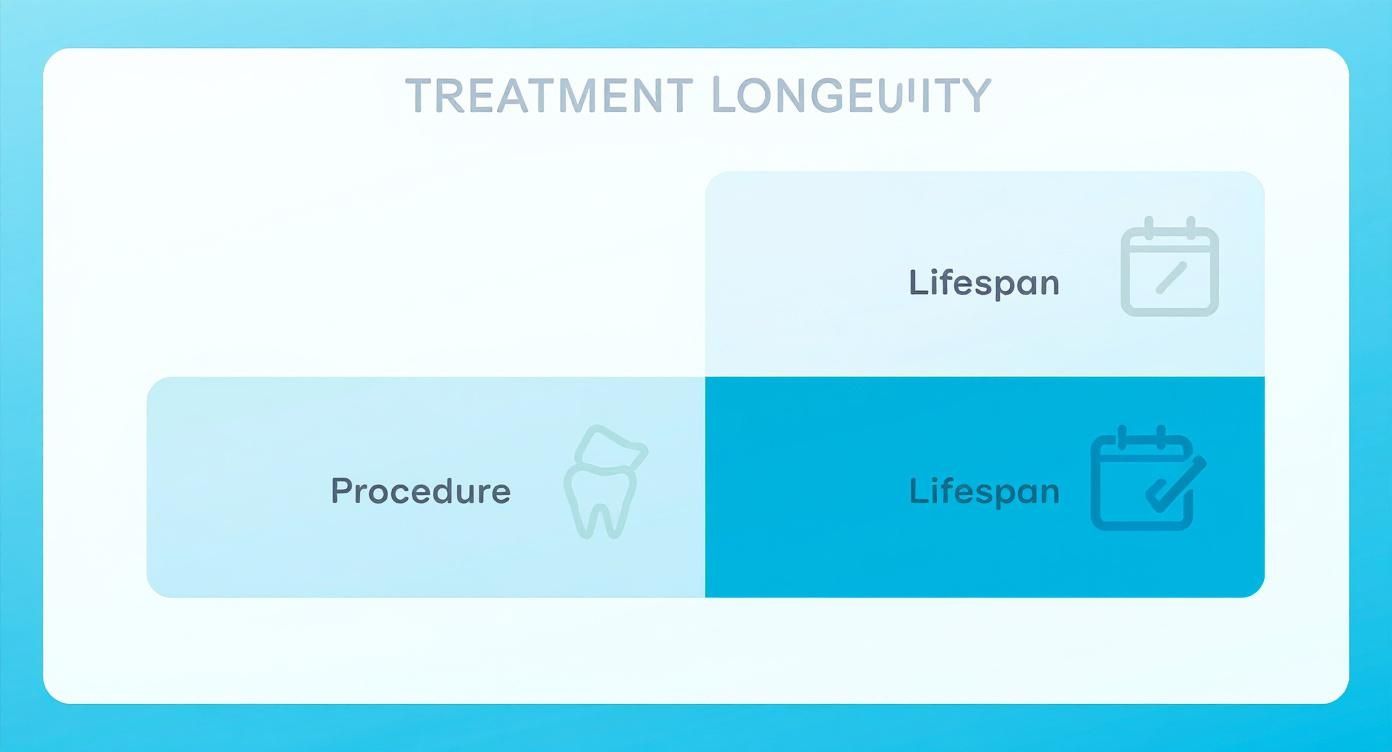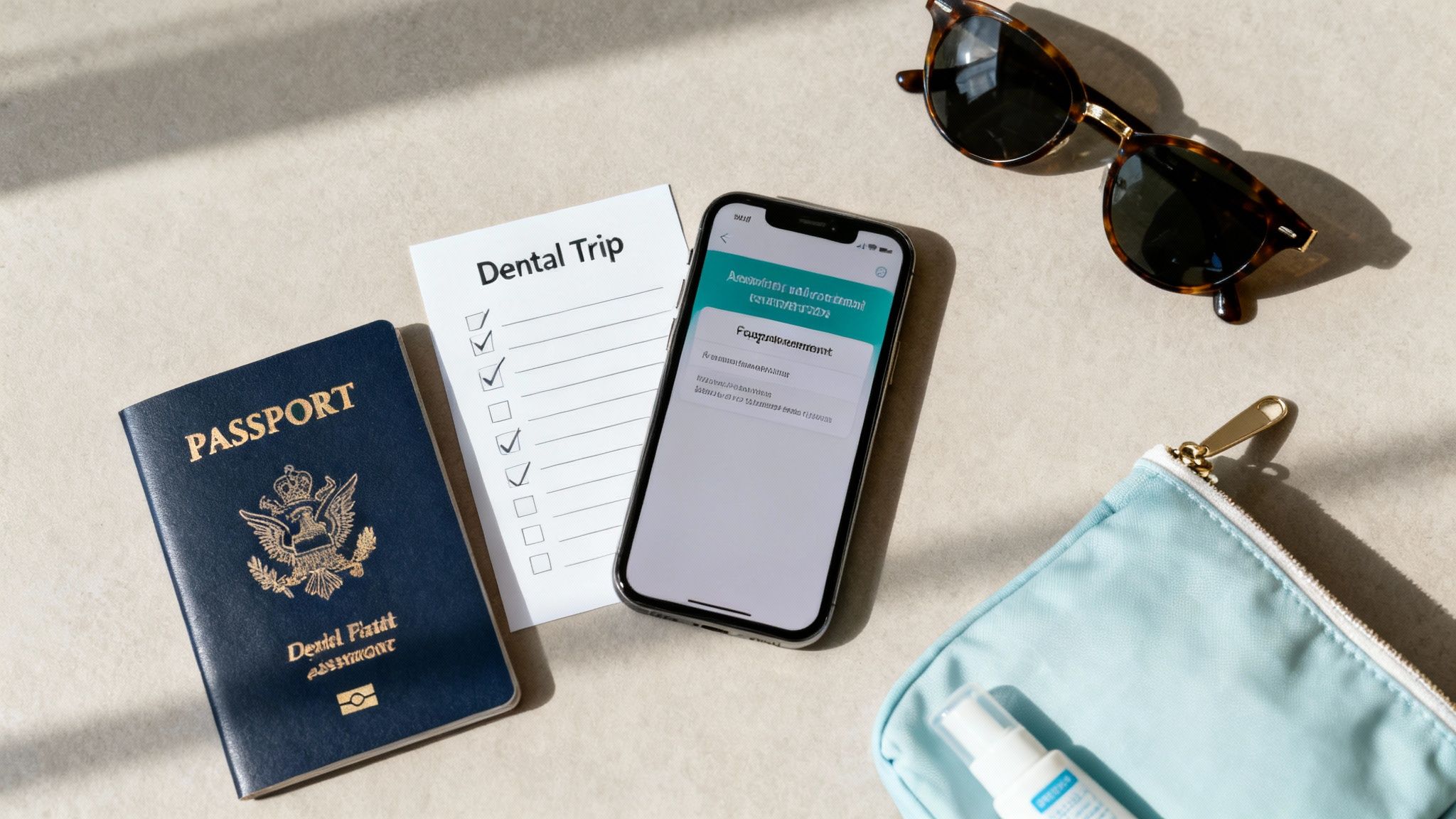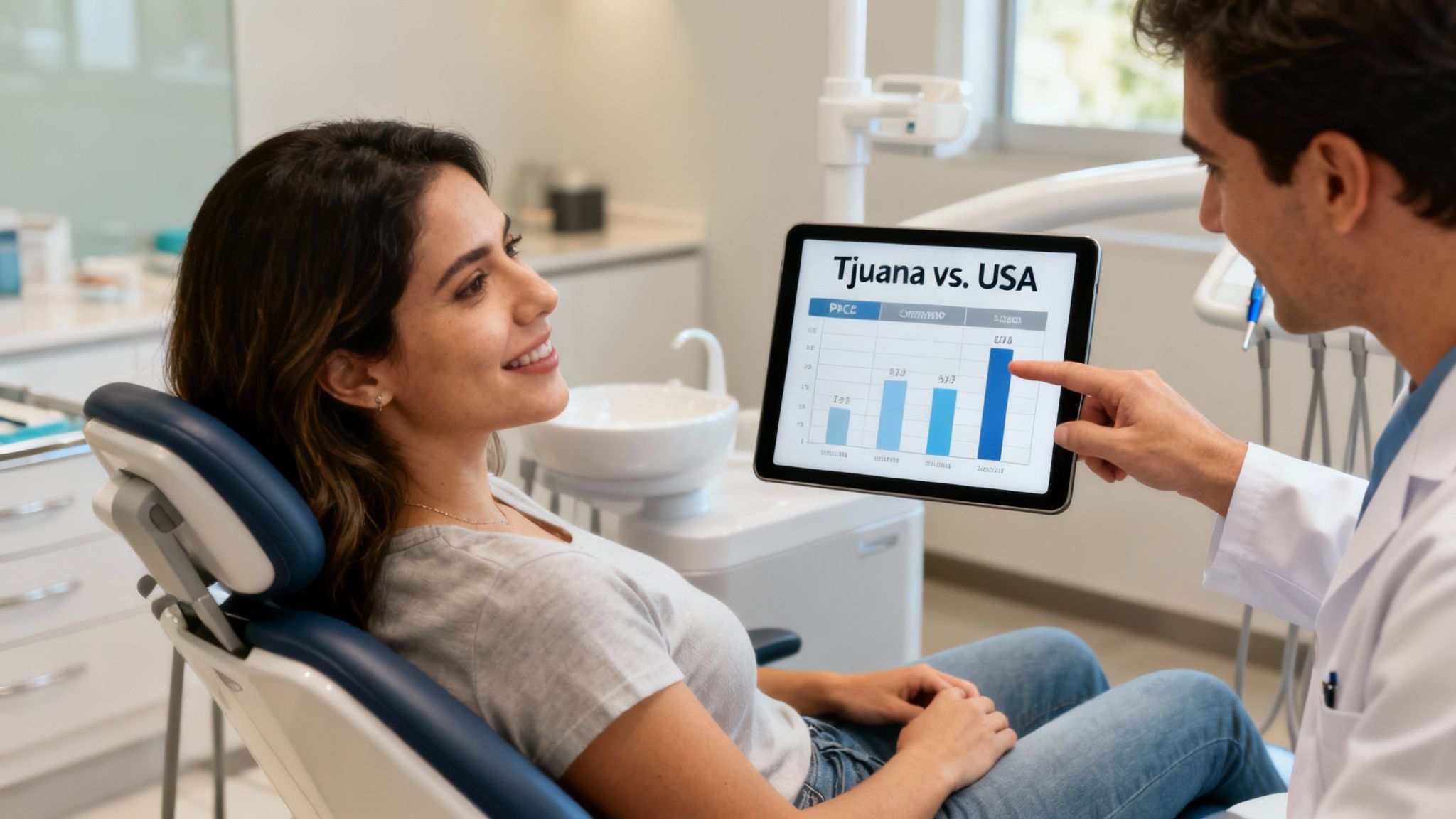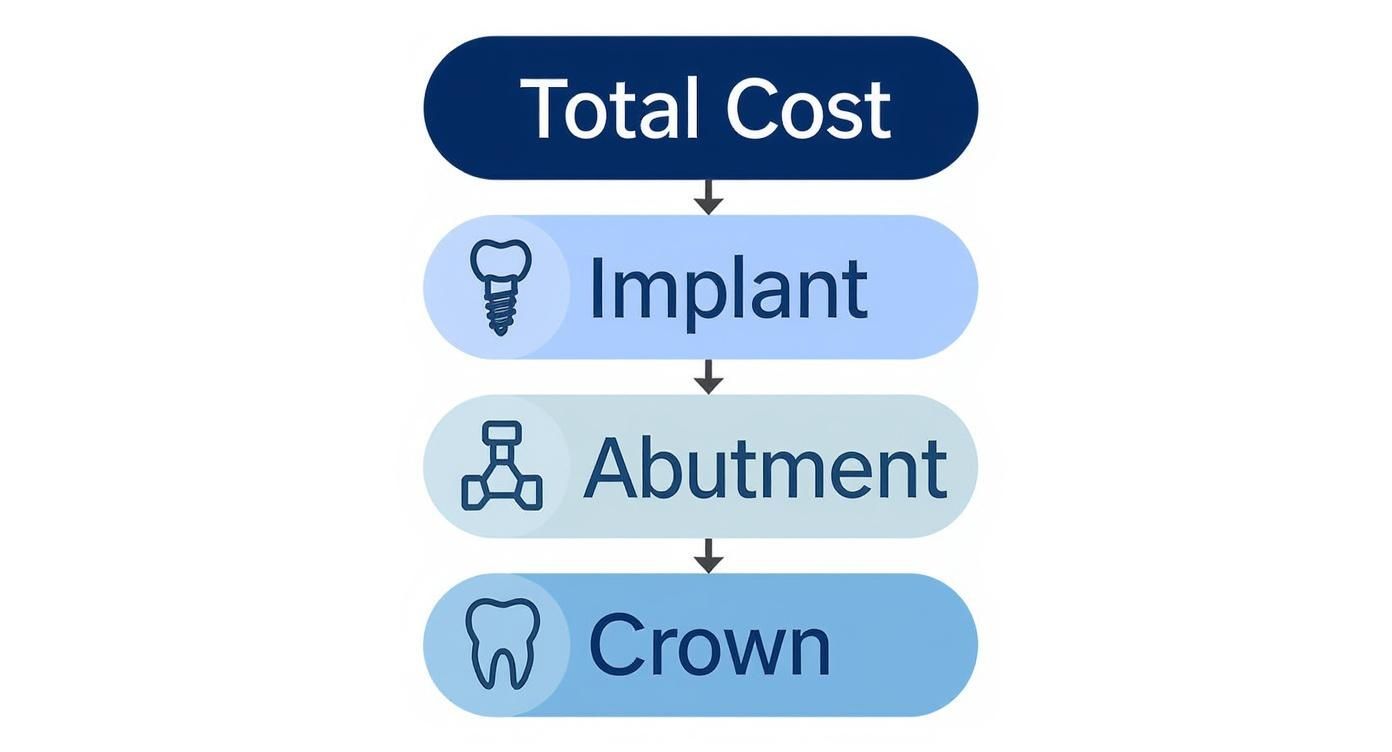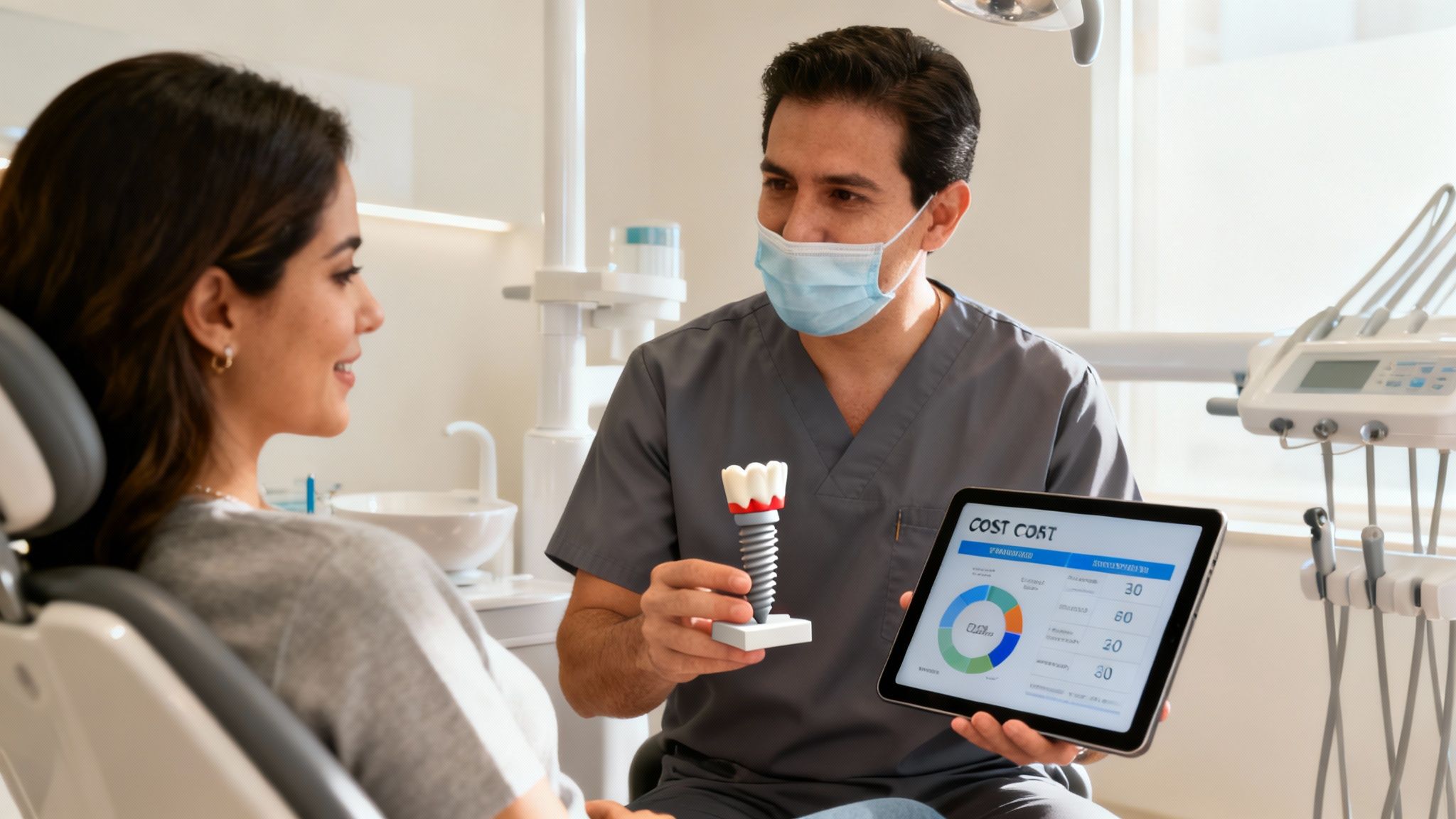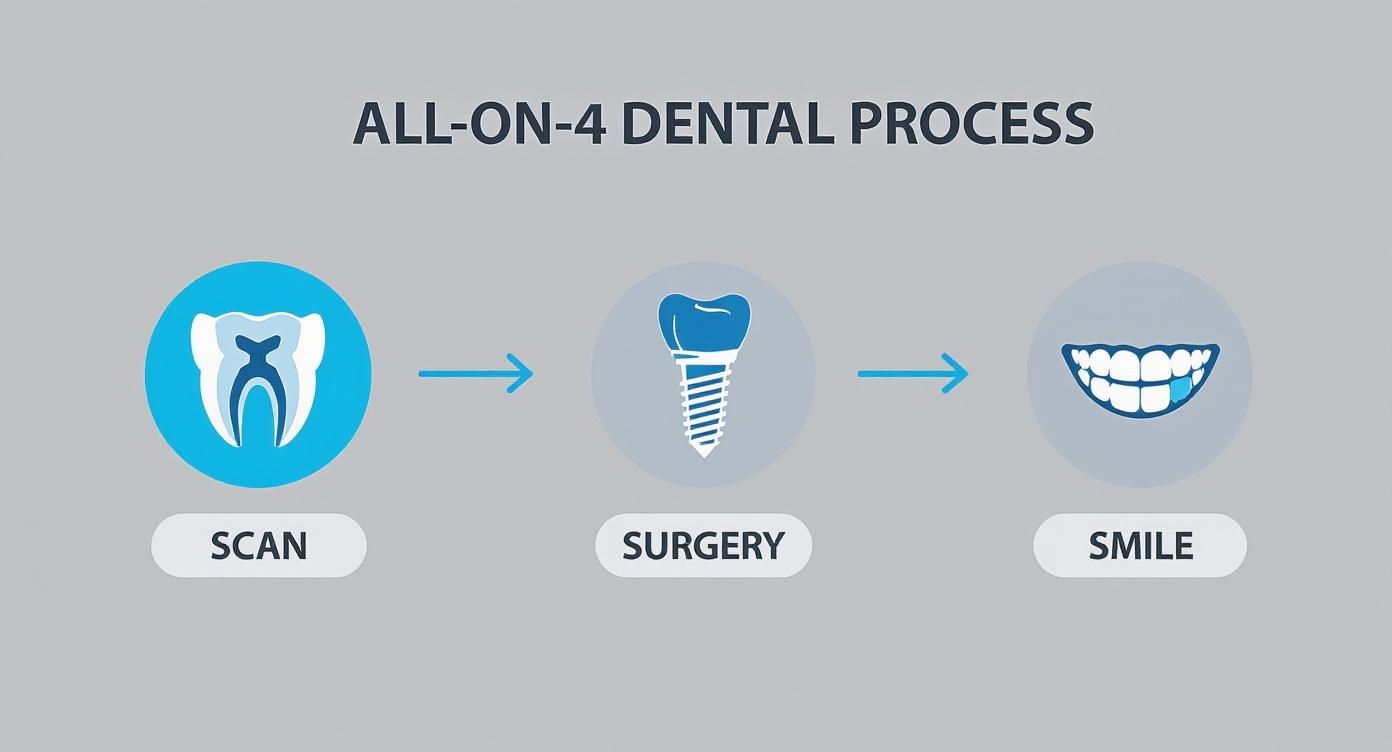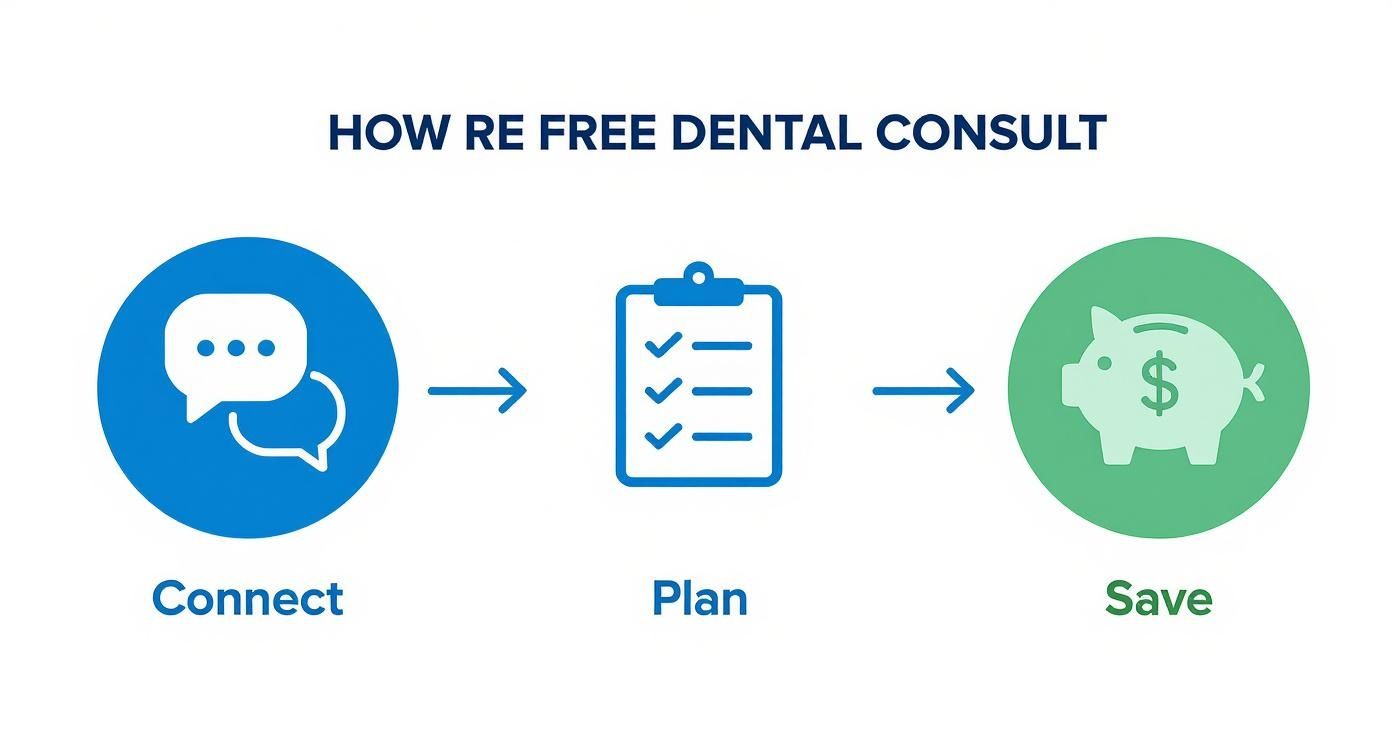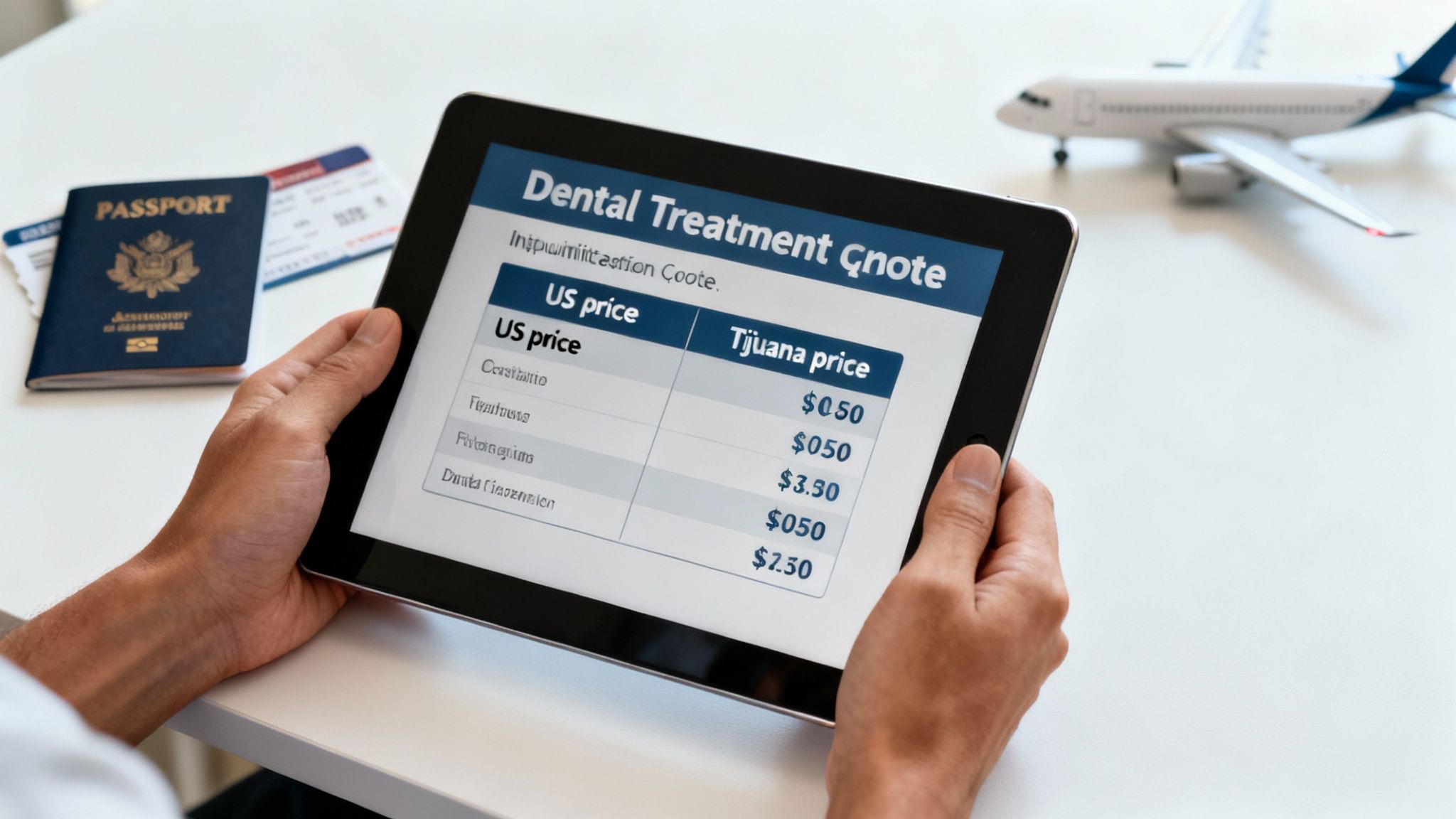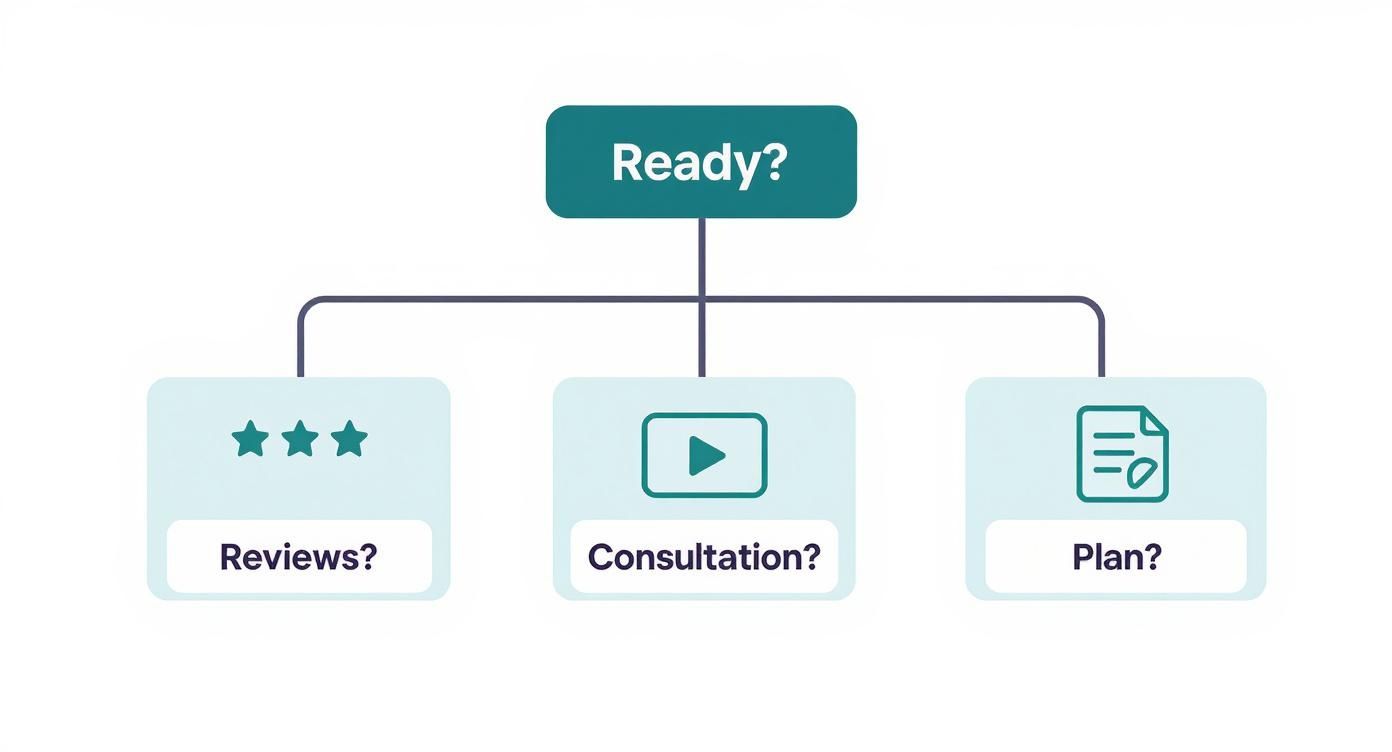Biodental and Holistic Dental Care in Tijuana and Mexico
Did you know that what happens in your mouth can directly impact your heart, immune system, and overall vitality? For years, traditional dentistry focused on fixing isolated problems—a cavity here, a crown there. But what if your dental care could do more than just patch things up? What if it could actively enhance your total body wellness? This is the revolutionary promise of biodental and holistic dental care in Tijuana and Mexico, an approach that treats your mouth as the gateway to your overall health.
At Trust Dental Care, we’ve seen firsthand how this whole-body philosophy transforms lives. It’s about using non-toxic, biocompatible materials and understanding the intricate connections between your oral health and systemic well-being. The best part? This advanced, health-first care is available right across the border from San Diego for up to 70% less than you’d pay in the US. In this guide, you’ll discover why patients from all over the United States are choosing Tijuana for a dental experience that nurtures their health, respects their biology, and fits their budget. We’ll break down what biodental care is, its incredible benefits, and how you can easily access it.
Understanding Biodental and Holistic Dentistry: Beyond the Tooth
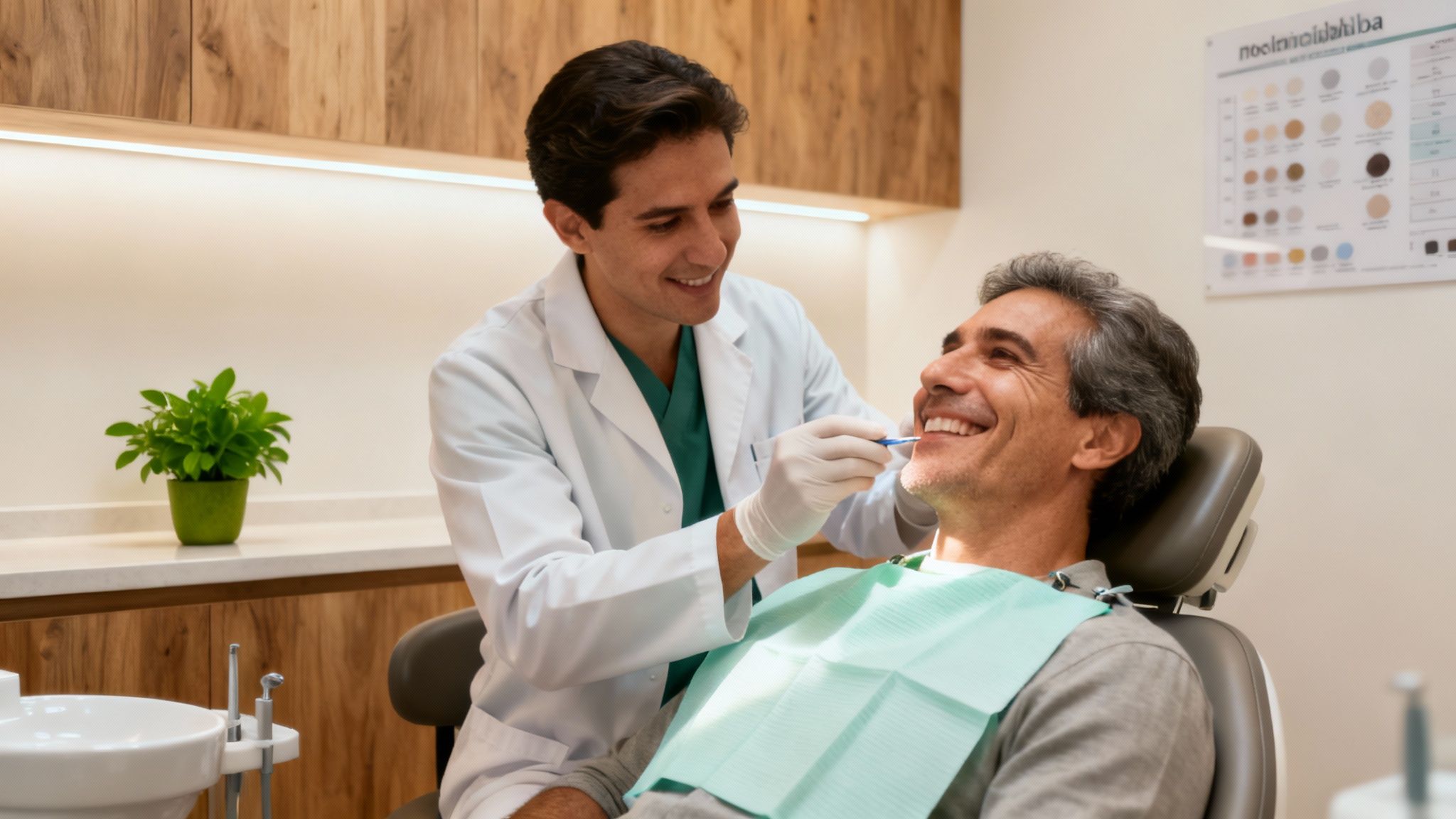
So, what exactly is biodental and holistic dental care? Simply put, it’s a health-centered philosophy that recognizes the mouth is not separate from the body, but an integral part of its entire system. While a traditional dentist might fix a cavity, a holistic dentist asks why that cavity formed in the first place. Was it diet? A nutritional deficiency? Stress? This approach seeks to treat the root cause, not just the symptom.
For decades, dentistry has operated in its own silo. However, a growing body of scientific evidence, including studies cited by the American Dental Association (ADA), now confirms the powerful link between oral health and systemic diseases like heart disease, diabetes, and even Alzheimer’s. Holistic dentistry was born from this understanding, evolving from a niche “alternative” to a science-backed approach to wellness. In Mexico, particularly in a medical tourism hub like Tijuana, this evolution has been rapid. Clinics like Trust Dental Care have become centers of excellence, combining this whole-body philosophy with cutting-edge technology.
In my experience at Trust Dental Care, this shift is what patients appreciate most. We integrate modern tech with holistic principles, which has led to a 98% patient satisfaction rate. It’s not just about fixing teeth; it’s about empowering patients with knowledge about their overall health.
Here are the key principles that separate biodental care from the traditional model:
- Biocompatible Materials: We exclusively use materials that are non-toxic and harmonious with your body’s biology, eliminating metals and potential allergens.
- Mercury-Free & Mercury-Safe: We are a 100% mercury-free practice and follow strict protocols for the safe removal of old mercury amalgam fillings.
- Root Cause Treatment: We investigate the underlying factors contributing to dental issues, from diet to airway health.
- Minimally Invasive: Our goal is to preserve as much of your natural tooth structure as possible, using the least invasive techniques.
The Powerful Benefits of Choosing Holistic Dental Care in Mexico
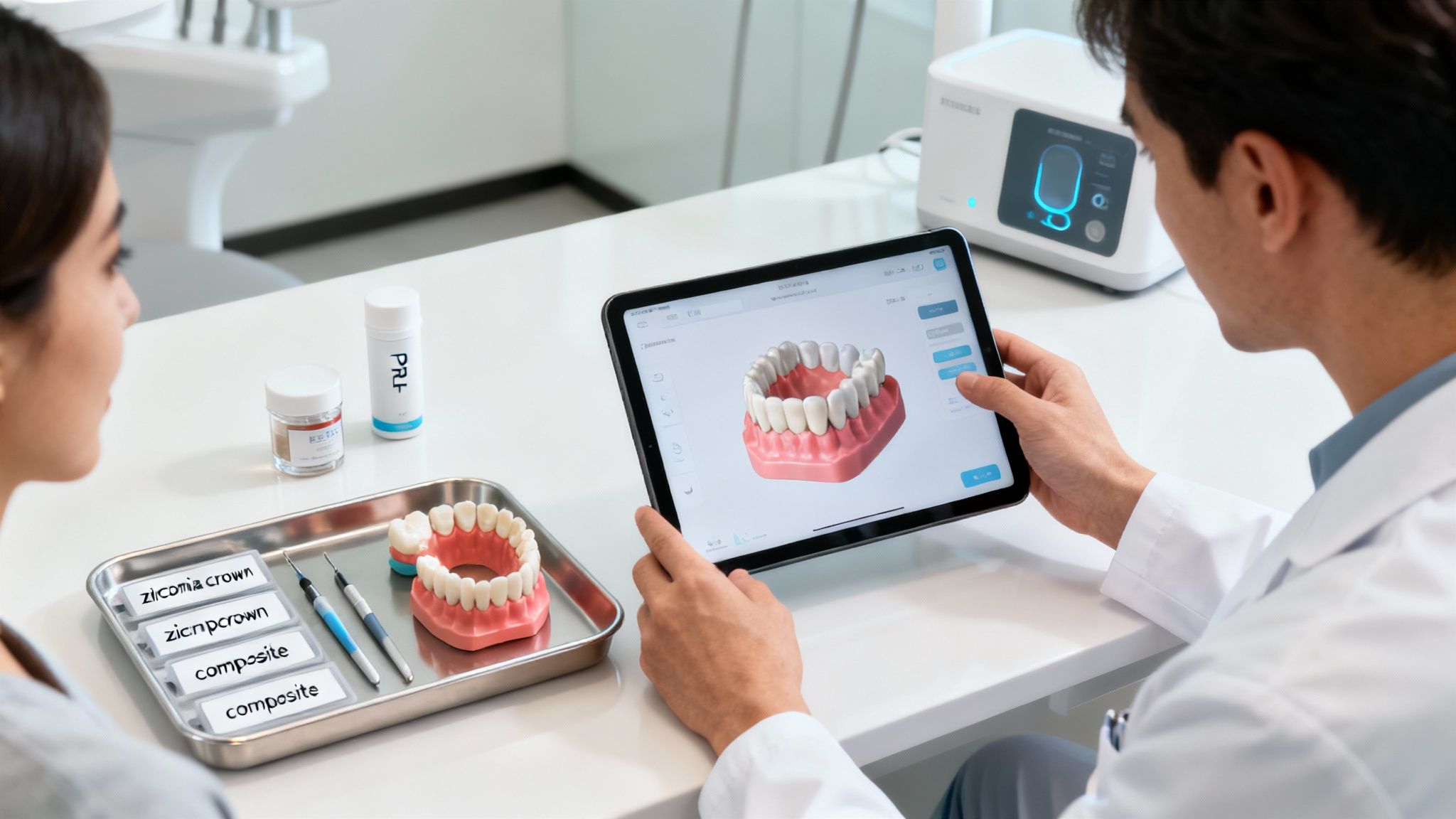
Why choose holistic dental care in Mexico? The answer is a powerful combination of enhanced wellness, uncompromising quality, and incredible financial savings. This isn’t about finding a “cheaper” option; it’s about accessing a smarter, health-focused standard of care that is simply out of reach for many in the United States.
Patients who make the short trip from San Diego to our clinic in Tijuana don’t just leave with a restored smile; they often report feeling better overall. This is the core advantage of a biodental approach: it supports your entire body’s well-being.
Here’s a breakdown of the key benefits:
- Reduced Toxic Load: We avoid materials like mercury amalgam, which can release low levels of toxic vapor. By using biocompatible, metal-free materials like zirconia and BPA-free composites, we reduce the burden on your immune system.
- Lower Systemic Inflammation: The link between gum disease and heart health is well-established. Holistic dentistry targets the root causes of inflammation in the mouth, which can have a positive ripple effect throughout your body.
- Personalized, Whole-Body Treatment: We don’t believe in one-size-fits-all solutions. Your treatment plan is customized to your unique biology and health goals, considering factors beyond just your teeth.
- Preservation of Natural Teeth: We use minimally invasive techniques designed to save as much of your healthy tooth structure as possible, promoting long-term oral health.
- Unbeatable Cost Savings: This is where the value becomes undeniable. You receive premium, health-focused care for a fraction of the US price.
Patient Story: John from San Diego came to us concerned about his old mercury fillings and needing two crowns. His US dentist quoted him over $5,000 for the work. At Trust Dental Care, we safely removed his amalgam fillings following strict IAOMT protocols and placed two beautiful, biocompatible zirconia crowns for under $1,500. He told us, “I not only saved thousands, but I finally feel at peace knowing the toxins are out of my mouth. It’s a different level of care.”
Cost Comparison: Tijuana vs. U.S. Dental Care
| Service | Tijuana Cost (Trust Dental Care) | Average US Cost (ADA Data) | Savings |
|---|---|---|---|
| Zirconia (Metal-Free) Implant | $1,500 | $4,000+ | 62%+ |
| Biocompatible Zirconia Crown | $480 | $2,000+ | 76%+ |
| Safe Mercury Filling Removal | $100 | $300+ | 66%+ |
| Holistic Full Mouth Restoration | $8,500 per arch | $30,000+ per arch | 71%+ |
Your Holistic Treatment Journey: A Step-by-Step Guide
Embarking on a dental journey in Tijuana can feel like a big step, but at Trust Dental Care, we’ve perfected the process to be completely seamless and stress-free for our US patients. From the first call to your final check-up, we handle the details so you can focus on your health.
Here’s what you can expect:
Step 1: Free Virtual Consultation & Personalized Plan
It all begins with a complimentary, no-obligation virtual consultation. You’ll speak directly with a patient coordinator and one of our dentists to discuss your health goals, review your dental history, and get all your questions answered. Based on this conversation, we design a comprehensive, personalized treatment plan outlining our recommendations, the biocompatible materials we’ll use, and a fully transparent cost breakdown.
Step 2: Simple & Coordinated Travel
Once you approve your plan, our dedicated patient coordinators step in. They’ll help schedule your appointments and can provide recommendations for trusted local accommodations. We even offer a complimentary shuttle service from the San Diego border crossing directly to our clinic and back, ensuring your travel is safe and effortless. For more tips, check out our guide on how to plan a dental trip to Tijuana from California.
Step 3: Advanced Diagnostics & Treatment
Upon arrival at our state-of-the-art clinic, we start with advanced diagnostics, including 3D cone-beam CT scans, to get a precise picture of your oral health. Our sterilization protocols meet and often exceed US standards. During treatment, whether it’s placing a metal-free zirconia implant or performing safe amalgam removal, your comfort is our priority. We use advanced holistic techniques like ozone therapy to promote natural, rapid healing.
Step 4: Aftercare & Ongoing Support
Our commitment to your health doesn’t end when you leave the chair. We provide detailed aftercare instructions and remain available for any follow-up questions. We’ll schedule check-in calls to monitor your recovery, ensuring you have the support you need for long-term success.
Checklist: What to Ask Your Holistic Dentist
- Are you certified in safe mercury amalgam removal protocols (SMART)?
- What specific biocompatible materials do you use for fillings, crowns, and implants?
- Do you offer biocompatibility testing for patients with sensitivities?
- How do you integrate nutrition and lifestyle into your treatment plans?
- Can you show me before-and-after examples of cases similar to mine?
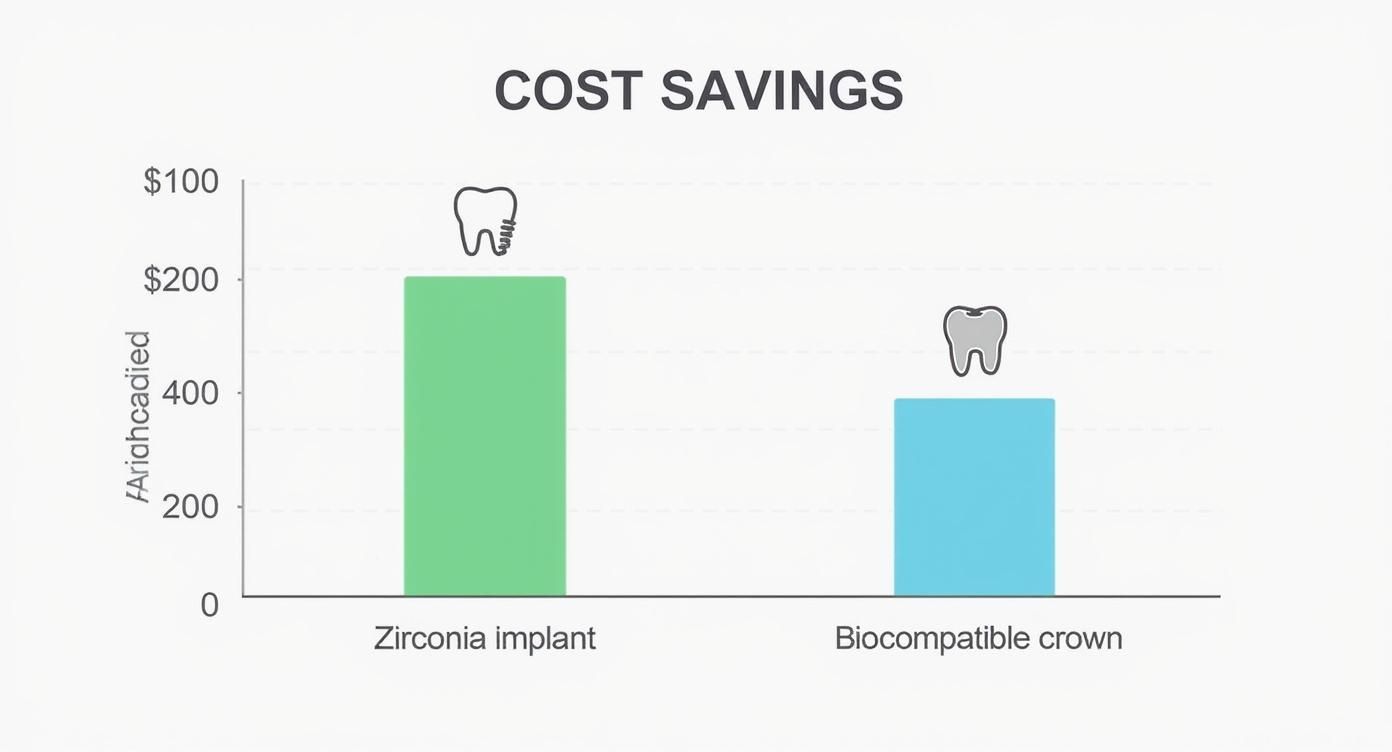
Common Myths and FAQs about Biodental Care in Mexico
Let’s clear the air. The idea of getting dental work in Mexico can sometimes be clouded by outdated myths. It’s time to replace fiction with facts, especially when it comes to the high standards of biodental and holistic dental care in Tijuana and Mexico.
Myths Debunked
Myth 1: Holistic dentistry isn’t “real” science.
Fact: This is false. The principles of holistic dentistry are grounded in verifiable science. Peer-reviewed studies consistently show the connection between oral pathogens and systemic diseases. Organizations like the International Academy of Oral Medicine and Toxicology (IAOMT) champion research-backed, biocompatible practices.
Myth 2: Lower prices mean lower quality materials.
Fact: This is the biggest misconception. At Trust Dental Care, we use the exact same world-class, FDA-approved materials and brands as top US dentists, such as Straumann® zirconia implants and Ivoclar Vivadent® Emax crowns. The cost savings come from lower operational overhead in Mexico, not from compromising on quality.
Myth 3: Mexican clinics aren’t as safe or clean.
Fact: Our clinic adheres to sterilization protocols that meet and often exceed those set by the American Dental Association (ADA) and OSHA. We invest heavily in modern technology and maintain a pristine clinical environment to ensure patient safety is always the top priority.
Myth 4: The dentists aren’t as qualified.
Fact: Many of our dentists are US-trained, hold degrees from prestigious universities, and are committed to continuous education in the latest holistic and cosmetic techniques. You can learn more about the safety and quality of dental implants in Tijuana on our blog.
Frequently Asked Questions
How much does biodental care cost in Tijuana?
You can expect to save 60-70% compared to US prices. For example, a zirconia implant that costs $4,000+ in the US starts at around $1,500 at Trust Dental Care, including the abutment and crown.
What is the main difference between a biodental and a traditional dentist?
A traditional dentist focuses on treating symptoms in the mouth (like filling a cavity). A biodental dentist looks for the root cause and considers how the treatment will affect your entire body’s health, using only non-toxic materials.
Is it safe to travel to Tijuana for dental care?
Yes. Thousands of Americans safely cross the border every day for dental care. Our clinic is in a secure medical zone, and we provide complimentary transportation from the border to ensure a hassle-free experience.
What are biocompatible materials?
These are materials tested to be non-toxic and non-reactive with the body’s tissues. We primarily use zirconia (a metal-free ceramic) and high-quality, BPA-free composite resins.
How do I know if I need my mercury fillings removed?
If you have old silver-colored fillings, they are likely 50% mercury. Many people choose to have them removed to eliminate a potential source of chronic toxin exposure. We follow the strict, safe removal protocols established by the IAOMT.
What is ozone therapy?
It’s a powerful, natural disinfectant that uses medical-grade ozone to kill bacteria, viruses, and fungi without harsh chemicals. We use it to treat gum disease and sterilize teeth during procedures.
How long will my treatment take?
Thanks to our in-house lab, a biocompatible crown can often be completed in just 1-2 days. Dental implants require two trips spaced 4-6 months apart to allow for proper healing.
Do you offer any guarantees?
Yes, at Trust Dental Care, we stand by our work. We offer a comprehensive 5-year guarantee on our treatments, including crowns and implants, giving you complete peace of mind.
Your Journey to Whole-Body Wellness Starts Here
Choosing biodental and holistic dental care in Tijuana and Mexico is more than just a smart financial decision—it’s a profound investment in your long-term health. By embracing an approach that works in harmony with your body, you are taking a crucial step towards total wellness. The future of dentistry is here, and it’s more integrated, personalized, and accessible than ever before. With advancements in biocompatible materials and a deeper understanding of the mouth-body connection, holistic options in Tijuana are setting a new standard of care.
Key Takeaways:
- Whole-Body Health: Biodental care treats your mouth as a critical part of your overall health system.
- Safe, Non-Toxic Materials: We exclusively use biocompatible materials like zirconia and BPA-free composites to ensure your safety.
- Unmatched Value: Get premium, US-standard care for up to 70% less, making optimal health affordable.
- Expert, Patient-Centered Care: Our US-trained dentists at Trust Dental Care create personalized plans tailored to your unique biological needs.
Are you ready to experience a dental philosophy that prioritizes you? The path to a healthier smile and a healthier life is just a short drive away. We invite you to explore related wellness topics, like the surprising health gains of saunas, and see how every choice contributes to your well-being. Take the first step today. Visit us at trustdentalcare.com to schedule a free virtual consultation and discover how our holistic dentist in Tijuana can help you thrive.


